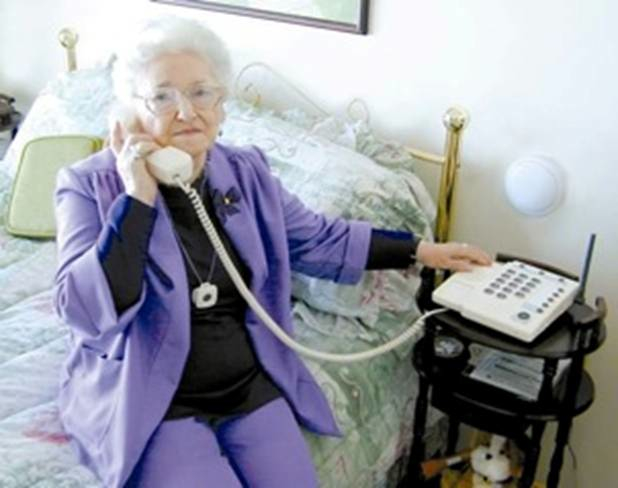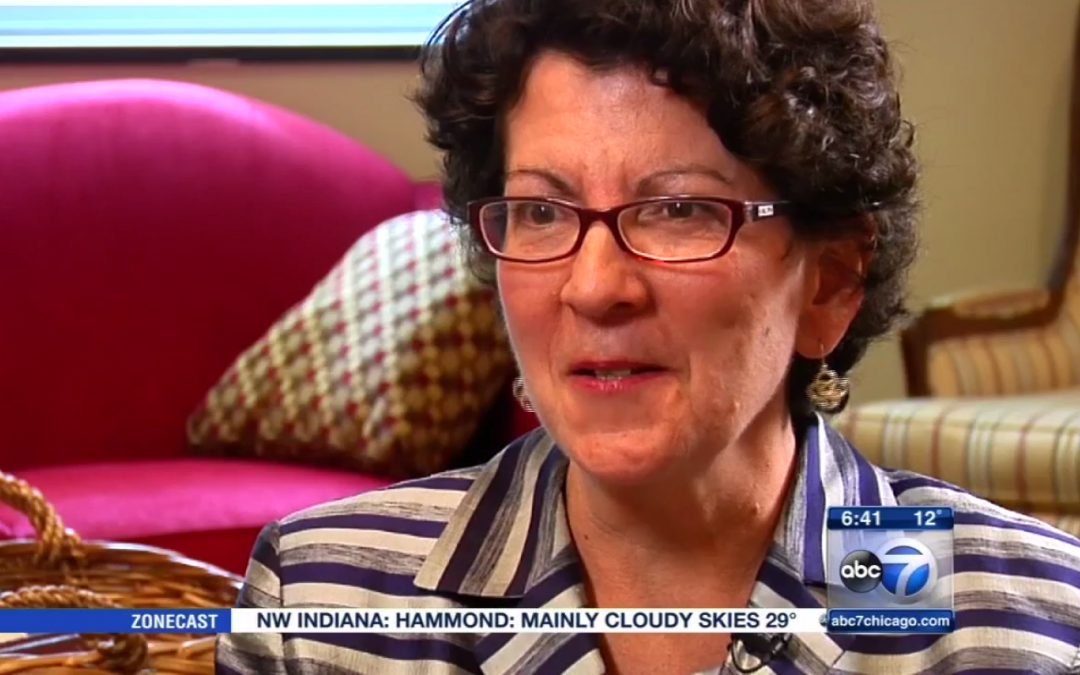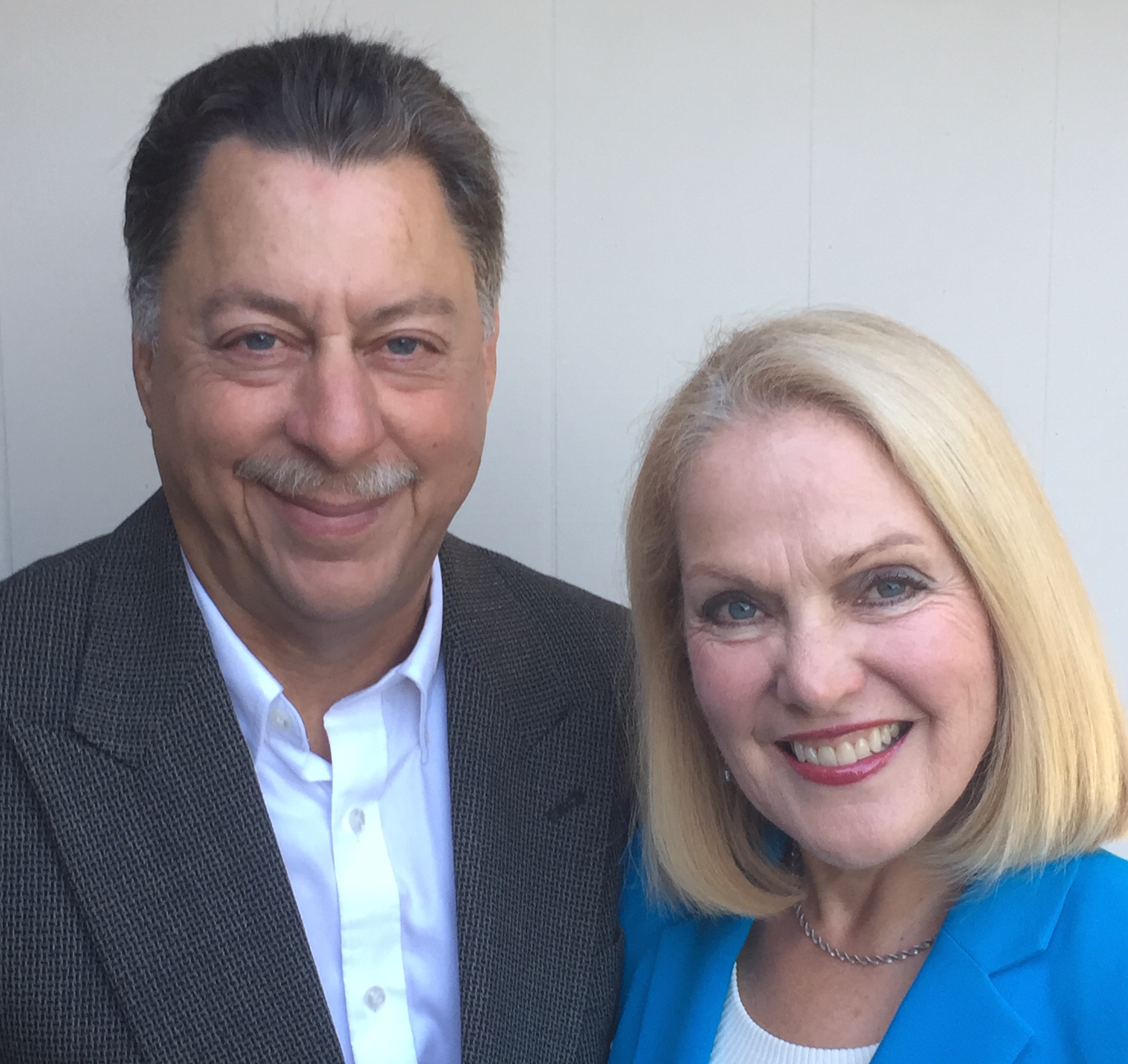
May 9, 2019 | aging, aging investor, cost of aging, declining health, diminished cognition, elder investor, elderly, finances for elders, financial advisors, financial capacity, financial elder abuse, financial judgement, handling money for aging parents, handling money for seniors, resources for senior, resources for seniors, scammers, senior citizen investor, senior investor, seniors finances
The Senior Safe Act allows you to hold transactions when you suspect financial abuse of a client. The Act is designed, at least in theory, to allow time for the trusted contacts you have on file to take appropriate action. Many of those victimized by predators or manipulated by unscrupulous family have dementia and have lost their judgment about what makes sense financially. The Act urges you to get trusted contacts and provides that you are not breaking privacy rules to contact them in the reasonable belief that your client is being financially abused. The length of time you can hold a requested transaction can be as long as a month. This is where the Senior Safe Act has missed the mark.
Let’s look at the reality of impaired elders who are in charge of their wealth on the family trust. The trust is in order, and if the elder recognizes that he or she is experiencing decline in mental ability, that trustee may choose to resign. Simple. But that is not what happens in too many cases. For many persons who have cognitive decline and dementia, the elder does not recognize that he is impaired at all. “I feel fine!” he tells his worried family. When asked to resign as trustee, having total control over (theoretically) millions of dollars in a trust, the elder flatly and stubbornly refuses. Meanwhile, financial abuse by predatory people can continue unabated.
When an older person experiences cognitive decline, it typically has a very slow onset. Short-term memory loss does not raise enough red flags for those closest to the elder to take any action. “She’s just getting old” they say dismissively. But memory loss is often the first and earliest warning sign of Alzheimer’s disease, the most common form of dementia. The odds of having Alzheimer’s disease by age 85 are at least one in three. Think about your own older clients. Some live well beyond age 85. The risk of dementia rises with age. Short-term memory loss interfering with daily life is not a normal part of aging. Financial abuse and cognitive impairment often go together.
When financial abuse reaches a visible level, the advisor may do what the law allows and call the trusted contact person, usually an adult child. The advisor hopes that the call will somehow trigger something and the abuse will be stopped. But here is a reality check: The family can’t accomplish anything needed in two weeks or even a month if you hold transactions then. Here is a real case example of just such a situation, showing how long it really did take.
In our work with a family at AgingParents.com we saw rampant financial abuse of an elder by a family member. The elder had dementia but had not been formally diagnosed by his doctor. Over 70% of his income was going to the predator. He was asked to resign as trustee by his two adult children, who were reasonably worried that he was going to give away all his cash and further encumber his home. The dad, whom we’ll call Gene, had been developing dementia for at least two years. He felt obligated to the predator and was totally powerless in resisting her demands for money. He just kept writing checks, draining his own resources. It was clearly a case of financial manipulation.
We were involved in working to persuade Gene to allow what his family trust provided: to have his daughter, Jennie, become the successor trustee. He agreed, then reneged. He accepted the logic and then refused to accept it. The kids had no choice but to use the law to take over control. Their father was too stubborn to resign as trustee when asked, even with the entire family presenting a united front, asking and respectfully begging.
The trust, like many such documents provided that Gene could be removed as trustee by his appointed successor, his daughter, after two physicians had declared him to be incapacitated for handling his own finances. A court decision was not required. However, getting him to two doctors willing to assess him and put their observations in writing was a challenge that took months to accomplish. The total time spent getting the change of trustees accomplished according to the terms of Gene’s trust was eight months.
His children were the trusted contacts in the advisor’s file. They knew about the abuse and were in agreement with the advisor that Gene had to stop being the trustee. The adult children had to hire consultants (AgingParents.com), have meetings, hire an attorney, and try various methods to get the job done. Their time energy and thousands of dollars were expended to prevent an even worse outcome, which was being left to support their aging father if he were to totally deplete his own funds.
The takeaways:
- Though well intended, we do not expect that the Senior Safe Act will do much to stop financial abuse because of the short time allowed for a financial professional to hold transactions. In Gene’s case, the predator would have been happy to wait a mere two weeks or a month before resuming the financial manipulation of Gene.
- Know that any older impaired client may not understand that he or she is cognitively impaired and will ignore pleas to resign as trustee with total control over any family trust.
- If you see that an older client is showing signs of cognitive decline, do not wait until it gets worse. Reach out at the time of your first suspicions of trouble. The family or other trusted persons may well have a better opportunity to persuade an elder to transfer power over finances to the appointed successor before complete loss of capacity. Expect this to take time.
In the case described above as a result of ongoing financial abuse, nearly all of Gene’s cash was depleted during the eight months of effort on the part of his adult children to have him removed. The advisor did the right thing but too much of Gene’s cash was depleted in the period when the abuser could keep manipulating him for those months of effort by family to have him removed as trustee.
By Carolyn L. Rosenblatt, RN, Elder law attorney, AgingInvestor.com
If you are seeing abuse and feel lost about how to stop it, contact us at AgingInvestor.com for a confidential consultation with our nurse-lawyer, geriatric psychologist team so you can do everything possible to protect your vulnerable client.

Apr 10, 2019 | aging, finances for elders, financial advisors, financial capacity, financial elder abuse, financial judgement, handling money for seniors, investment news, scammers, senior citizen investor, senior investor, seniors finances
Warn Your Aging Clients About A New Telephone Scam–Fake “Social Security” Calls
Carolyn L. Rosenblatt, RN, Elder law attorney, AgingInvestor.com
Scammers targeting your aging clients are getting smarter about how to fool them. Thieves can use spoofing computer software to trick the recipient of a call by showing a “real” number on caller ID. Pretend caller ID isn’t new but using it to target seniors on Social Security is a cruel tactic used to intimidate seniors. Here’s how it works. The evil caller has your older client’s telephone number and knows him to be at least of Social Security age. When the call comes in, it shows on the ID that yes, it’s Social Security. The caller immediately tells the elder in an authoritative voice that her Social Security number has been blocked. Of course this draws the expected reaction from most people–fear. They are not going to question what it means to have the SS number “blocked” or if that is even possible. (It isn’t.)
The caller says it is urgent and that in order to “reactivate” the SS number, the elder must act immediately, or their Social Security benefits will be affected. As your senior clients had paid into Social Security since its inception they don’t want to lose it. The scammer convincingly fakes concern and wants to “help”. All your aging client has to do is pay a fee and the number will be unblocked, they’re told. Many elders have heard of identity theft and believe that this person is going to help them prevent unauthorized use of their SS number, because that is what they hear on the call. Of course the caller then needs to “verify” the number and your client complies and recites the number. Instantly the number can be put into use any number of ways identify thieves have devised. And worse yet the elder pays them the “fee”.
Even if you believe with all your heart that YOUR aging loved is not dumb one and won’t fall for any of this, do not be so sure. Anyone can be caught off guard. Scammers are very clever at using fear and other strong emotions to manipulate unsuspecting aging parents to give up information without thinking about whether the request for it makes sense. You want to warn them. You want to remind them that they are never to give out any personal information like a SS number to a person they did not call themselves. Everyone’s Social Security numbers are potentially floating around in cyberspace enough as it is, without handing them to a telephone stranger who is lying to get them to pay money. You can warn your aging parents that the Social Security Administration will never ever call and ask anyone to verify the SS number. You can remind them that even if the caller ID shows something that looks real, it can be fake because spoofing software can show anything the scammers want it to show.
Millions of elders are approached regularly by this telephone scam and many others. My own mother in law, now passed, was very smart at fending off such phony calls and smelling a scam. But by age 95, that scam sensor she used to have seemed to fade. One day a man called her landline and said he was from Medicare. He just wanted to “confirm her Medicare number”. She had an active Medicare claim going on at the time, and we were helping her address the details. Because she had that claim, she fell for the trick. She gave the caller her full name, address, date of birth, mother’s maiden name, and her Social Security number. Fortunately we found out within a day and were able to jump into action to change all her accounts and credit cards. It took four months to straighten out the mess. The scammers got nothing. We got a lot of work, and had to take her to her banks and financial institutions in person to change everything. She felt bad because she was supposed to know better. Yes, but she forgot. We were lucky to find out before anything worse happened.
The takeaway here is that financial advisors are in a unique position of trust with your clients and they are likely to read a friendly letter from you, just giving them a heads-up about the latest scam. We urge you to create an old fashioned series of letters warning them about scams, about things happening in your industry that affect them, such as the Senior Safe Act and just staying in contact. When they hear from you in a friendly way, it reminds them of why they like and trust you. You’re more likely to retain them that way.
No time to write? Let us help at Aging Investor.com. We have free, pre-made client education material created just for seniors. You can simply download and send them out at intervals to all your retirement-aged clients. To access these items, ebooks and checklist, go to the Books and EBooks menu on our home page and find Resources for Clients. It can only make you look good to your investors!
|
|
Dr. Mikol Davis and Carolyn Rosenblatt, co-founders of AgingInvestor.com
Carolyn Rosenblatt, RN, Elder Law Attorney offers a wealth of experience with aging to help you create tools so you can skillfully manage your aging clients. You will understand your rights and theirs so you can stay safe and keep them safe too.
Dr. Mikol Davis, Psychologist, Gerontologist offers in depth of knowledge about diminished financial capacity in older adults to help you strategize best practices so you can protect your vulnerable aging clients.
They are the authors of "Succeed With Senior Clients: A Financial Advisors Guide To Best Practice," and "Hidden Truths About Retirement And Long Term Care," available at AgingInvestor.com offers accredited cutting edge on-line continuing education courses for financial professionals wanting to expand their expertise in best practices for their aging clients. To learn more about our courses click HERE
|

Feb 21, 2019 | aging, aging investor, cost of aging, cost of long term care, declining health, elderly, finances for elders, financial advisors, handling money for aging parents, handling money for seniors, health, long term care insurance, resources for senior, resources for seniors, retirement planning, senior citizen investor, senior investor, seniors finances
It used to be that we could think of retirement in a kind of predictable way. People lived into their 70s perhaps, and we measured retirement by that. We used tables, algorithms and other tools to tell us how much we should save and how much we could spend in retirement. And it was all based on assumptions that may no longer apply.
Life expectancy for a woman in the U.S. in 2018 was 84 years. For a man, the figure is 80 years. Those averages do not take into account the fact that well educated and financially secure people live longer than average. This is presumably based on the notion that people who know what a healthy lifestyle is and who can afford the best medical care will outlive those who do not have those advantages. In my own county, for example, which has a high proportion of elders compared to other counties in California, one wealthy city shows a life expectancy for men of 93 years.
Suppose that your aging client lives to be 93, having retired at age 65. That’s 28 years of retirement. What the algorithms don’t clarify is what you, the advisor needs to plan for with your client during the last decade of life, from 83-93. No formula is going to help you with the individual discriminations you need to make concerning your client’s risks for care and how to assess and plan for them. They can be a substantial cost, out of pocket, not covered by Medicare, and absolutely necessary.
The way we age is determined by two main factors: hereditary tendency and lifestyle. Our genetic makeup directs only about 30% of the equation. The other 70% is driven by the way we choose to live our lives. There are plenty of folks who think that a healthy lifestyle is just too much bother. They avoid exercise, eat whatever they feel like eating, never learn to manage stress and say they’d rather die a few years sooner than give up their habits, which their doctor advises against.
Here’s the problem with that belief. Leading an unhealthy lifestyle does not just cause you to “die sooner”. Rather, it may likely cause you to live with impairments, disabilities and a need for expensive long term care for chronic health conditions. These can go on for decades.
Take obesity, for example. Over two-thirds of Americans are overweight or obese. Obviously excess weight increases our risks for all manner of health issues, including diabetes, heart disease, high blood pressure, and strokes. When a doctor makes a diagnosis of one of these, the person doesn’t typically just die on the spot and save a lot of expense later on. No. The medical providers will keep the person going with medications, surgery in some cases, lots of diagnostic monitoring and trips to the doctors. These chronic conditions usually lead to disability late in life, particularly when more than one of them exists in the same person.
If you have aging clients, you definitely need to understand health risks in a basic way, so that you can help your clients set aside funds for the care they are likely to need in the last years of their retirement lives. All of the chronic conditions I mentioned are manageable with an effort toward a healthy lifestyle but for those who do not wish to do the work involved, you can bet on a likely need for long term care. While you can’t predict the future, you can plan for risk. It’s what you do.
My own mother in law had high blood pressure and chronic kidney disease for decades. She worked vigorously at diet, exercise, social activities and other components of a healthy lifestyle. Heredity was not on her side. She lived to be 96. During the last 3 years of her life, she needed help. She moved to a seniors’ community where help was available and eventually, she paid for private caregivers. Her cost of living at the last part of her life was $120,000 a year. If this were your client, would he or she have at the ready $360,000 to pay for care? How about if there was no pursuit of a great lifestyle? The care expense could easily be 10 years.
The takeaway here is that advising for longevity needs to include the skill of assessing fundamental health risks that create a need for out of pocket, long term care. You don’t need to be a doctor and you can’t predict everything, but you can do what is reasonable to help your client plan. Ask the right questions. Keep track of your client’s general health picture.
To learn more about what to look for and what to ask, get Hidden Truths About Retirement & Long Term Care, available at AgingInvestor.com and on Amazon.
By Carolyn L. Rosenblatt, RN, Elder law attorney, AgingInvestor.com

Feb 13, 2019 | ageist, aging investor, elder investor, elderly, finances for elders, financial advisors, handling money for aging parents, handling money for seniors, investor, retirement planning, senior citizen investor, senior investor, seniors finances
In a conversation with a prominent retired financial advisor from a large institution, I heard the following:
“Financial advisors are not interested in retired people. They’re taking money out. The advisors are interested in investors who are putting money in, not the other way around.”
Just hearing this generalization, whether true or not, gave me a kind of sick feeling in the pit of my stomach. Millions of Boomers fall into this category of retired. If their advisors lose interest in them when they are no longer increasing their investments, where does that leave the retired person in need of advice? The generalization sounded like age discrimination.
As a professional devoted to the well-being, financial safety and quality of life of older adults, I can only hope the statements I heard about lack of interest are untrue. I have met plenty of financial advisors who are indeed interested in maintaining their relationships with their oldest clients, not just based on whether the portfolio is increasing. They actually do care about the clients. For them, it’s not just an empty advertising slogan. I hope this is the majority!
Millions of clients served by advisors will retire soon enough or these clients are already in that phase of their lives. Competent financial advisors who have the ethics they hold themselves out as having will increase their skills in planning for lifespans for some of their clients who will live into their 90s and beyond. No logarithm nor mathematical table will do a complete job of this.
Here are some of the areas involved in longevity planning that the best advisors will fully understand by their increased training and preparation:
- Social Security, and how to maximize the benefit.
Particularly with married couples, this requires specialized knowledge in order to give appropriate advice. When I asked my own long time B-D at our financial institution about it, he was very vague and couldn’t even refer me to anyone who could answer questions my husband and I raised. We fired him. We found an independent advisor who was very knowledgeable about Social Security. We referred three other people to this new advisor in the meantime and all became his clients. Take heed. Word spreads.
- Long term care planning.
Telling a client who is reluctant to purchase long term care insurance that self-insuring is a choice is fine, but the longevity advisor understands how to address the risk of needing long term care and has actual figures at hand to spell this out for the client. If this is not your area of expertise, you can get a clear understanding of the costs of all types of long term care in my book, Hidden Truths About Retirement & Long Term Care. About 70% of people will need some long term care at some point. Know what it costs.
- The nexus between financial planning and estate planning.
It never fails to surprise me about the disconnect between the financial advisor and the client’s estate planning attorney. Both should be working together to ensure that the client’s later years are financially safe. Successor trustees should be known by both the advisor and the lawyer, so that if a client begins to show cognitive decline, they can coordinate efforts to have the named successor take over decision making at the appropriate time. If you are worried about confidentiality of protected information, get the client’s permission in advance of any impairments, to communicate with the attorney involved. In other words, do this at the time of retirement.
- Targeting relationship building with the next generation.
- A loss of interest in a retired client deprives the advisor of a huge opportunity. That is, to establish a connection to and trust with your retired client’s heirs. Have you even spoken with any of them at the point of the aging investor’s retirement? If not, you have an explanation for the reason why about 80% of the heirs move their inherited assets to someone else after the patriarch or matriarch dies. The heirs can get to know you well in advance if you invite them, with your client’s permission of course, into the planning conversations. Don’t lose that chance.
In a nutshell, the older client needs the skill the financial advisor has and retirement should not change the advisor’s interest level. Keeping clients for life takes an understanding of longevity. Make it your business to do just that.
Carolyn L. Rosenblatt, RN, Elder law attorney, AgingInvestor.com
Oct 12, 2017 | aging, aging investor, diminished cognition, elder investor, elderly, finances for elders, financial advisors, financial capacity, financial judgement, handling money for seniors, investor, NAPFA, senior citizen investor, senior investor, seniors finances
Watch a brief VIDEO about our presentation ⇓

May 26, 2017 | aging, aging investor, elder investor, finances for elders, senior citizen investor
Mostly at the urging of their adult children, many seniors choose to move to senior communities where some help is available. These are usually called Assisted Living facilities (AL). When it is too difficult to keep up the family home or an elderly client of yours becomes too isolated after the loss of a spouse, AL can be a good choice.
No doubt you, the financial advisor have helped them consider the expense and the consequences or benefits of selling the family home. And they likely would not move if they could not afford the monthly cost of being in AL. However, there are things every advisor should know about AL so you can properly advise your clients.
The marketing departments of these homes can be very aggressive about promoting the benefits of AL. Indeed may of them are well appointed and have numerous convenient amenities. What they don’t tell you are the hidden disadvantages. Having interfaced with many of these facilities in our work at AgingParents.com and AgingInvestor.com as consultants to families, we want you to be fully informed of what they can and can’t do.
First, AL homes are not nursing homes, and they do not provide nursing or health care. If there is a nurse on staff at all, which is not required of any of them, the nurse is there to evaluate residents’ suitability, hear resident concerns, consult with staff and make referrals. It is not to provide direct care, even in an emergency. The nurse in such a facility, seeing an emergency, will call 911, just as any layperson might do.
These homes are not licensed to offer health care. Assistance with things like bathing, dressing, walking, bathroom, eating and getting in and out of bed are the limit of the help they can provide.
Next, these homes do not provide full staffing at night. If your client is forgetful or wanders around at night and her family shares this with you, AL may not be the best choice. Some people hire additional help privately to watch their loved ones in AL more closely, especially at night and this arrangement can work well. However, it is a significant additional expense and must be paid on top of the regular monthly charges of assisted living. We know of one resident whose family was spending $12,000 a month for the combination of AL and outside supplemental caregiving.
Finally, any home whether it is AL or any other place where care is delivered should be held accountable for the safety of your client who may become a resident there. No one is going to check on your aging client every hour in AL. Falls can happen anywhere, including a so-called “supervised environment”. The concept of AL was originally meant to give all levels of care but today that is not the case. The law requires separate licensing of any unit or facility that offers skilled nursing. Even when it is given on the same campus as AL, skilled nursing facilities are a separate entity from AL.
If you are talking to any client about the possibility of AL, be sure that your client is educated and that the family does not have unrealistic expectations of AL. The expense of these places is one consideration. The overall plan for the future of taking care of a client’s needs is another. Help your client be a wise consumer.
|
|
Dr. Mikol Davis and Carolyn Rosenblatt, co-founders of AgingInvestor.com
Carolyn Rosenblatt, RN, Elder Law Attorney offers a wealth of experience with aging to help you create tools so you can skillfully manage your aging clients. You will understand your rights and theirs so you can stay safe and keep them safe too.
Dr. Mikol Davis, Psychologist, Gerontologist offers in depth of knowledge about diminished financial capacity in older adults to help you strategize best practices so you can protect your vulnerable aging clients.
They are the authors of "Succeed With Senior Clients: A Financial Advisors Guide To Best Practice," and "Hidden Truths About Retirement And Long Term Care," available at AgingInvestor.com offers accredited cutting edge on-line continuing education courses for financial professionals wanting to expand their expertise in best practices for their aging clients. To learn more about our courses click HERE
|

May 8, 2017 | aging, aging investor, declining health, elder investor, elderly, finances for elders, financial advisors, financial capacity, financial elder abuse, financial judgement, handling money for aging parents, senior citizen investor, senior investor, seniors finances
Your older investors are sure it will never happen to them but Medicare fraud can trick anyone. Even those without a hint of cognitive decline can get taken by scammers. At AgingInvestor.com, we educate advisors about protecting clients from elder financial abuse and we thought we had our own family covered. With a 94 year old mother, we are especially alert. We were stunned when mom told us that someone “from Medicare” had called and asked her to “verify” her personal information.
Alice is a sharp 94 year old, living mostly independently in a seniors’ complex. She’s active, does her own shopping and is engaged with her neighbors in the community. She had an issue with Medicare not paying a bill for a service she had received some months prior. With our help, she had undertaken an appeal process, which involves a lot of repetitive paperwork. When a man saying he was from Medicare called, she thought it was about the appeal. Of course it wasn’t. The scammer asked her to “verify” her Social Security number, her address, date of birth and mother’s maiden name and she gave him that information.
A few hours later, she mentioned what had happened and said she had been wondering if it was right to give out that information. We were shocked! How is it that she didn’t see the potential ID thief when we talk about this all the time? We knew we had to jump on this right away to stop the thieves from using the information to open new accounts in her name. Hours were spent the next day calling the two banks where she had accounts, her credit card company, the credit reporting agencies and Social Security. We had to stop the auto debits on her bill payments. We cleaned up the mess.
So far so good. No unauthorized transactions have happened. Her old accounts were closed and new ones opened. Social Security sends her payments to the new account. Fraud alerts are on everything now. Whew! This was a lesson that even the alert older person can get fooled with the right pitch on the phone.
Here’s the takeaway.
Warn your clients: Medicare will NEVER call and ask you for your personal information. Never give it out unless you place a call to order something that you know is legitimate.
Medicare fraud can happen in many forms. This was just one of them. I believe that there was probably a connection between her Medicare appeal and the fraud attempt. It’s too much of a coincidence that they called when she had communication with Medicare going on already with her appeal. The appeal had not yet been resolved. This information got into the wrong hands, making it easy to trick a sharp person by saying he was calling from Medicare. Mom could be just like any one of your older clients.
Why is this important? You’re on the front lines and you have a trusting relationship with clients. Speak up and make basic efforts to educate them about these scams. A lot of money can be drained from an account instantly with all the client’s personal information out there. Make yourself look good. A word from you can remind your aging clients that you care about their financial safety and that you are looking out for them.
Learn more about protecting aging clients from financial abuse in Succeed With Senior Clients: A Financial Advisor’s Guide to Best Practices. Click here to purchase it now. You’ll build your knowledge about aging investors fast.
Carolyn Rosenblatt, RN, Elder Law Attorney, & Dr. Mikol Davis, Psychologist, Gerontologist, co-founders AgingInvestor.com
|
|
Dr. Mikol Davis and Carolyn Rosenblatt, co-founders of AgingInvestor.com
Carolyn Rosenblatt, RN, Elder Law Attorney offers a wealth of experience with aging to help you create tools so you can skillfully manage your aging clients. You will understand your rights and theirs so you can stay safe and keep them safe too.
Dr. Mikol Davis, Psychologist, Gerontologist offers in depth of knowledge about diminished financial capacity in older adults to help you strategize best practices so you can protect your vulnerable aging clients.
They are the authors of "Succeed With Senior Clients: A Financial Advisors Guide To Best Practice," and "Hidden Truths About Retirement And Long Term Care," available at AgingInvestor.com offers accredited cutting edge on-line continuing education courses for financial professionals wanting to expand their expertise in best practices for their aging clients. To learn more about our courses click HERE
|

Apr 24, 2017 | aging, aging investor, diminished cognition, elder investor, elderly, finances for elders, financial advisors, financial capacity, financial elder abuse, financial judgement, handling money for aging parents, handling money for seniors, investor, scammers, senior citizen investor, senior investor, seniors finances
What To Watch For: Aging Clients and The Sweetheart Scam
If it didn’t happen so often, there would be no need to warn your single, widowed clients about it. But every day, someone gets taken in by a “special someone” who appears to have only your client’s interests at heart. The special someone is a scam artist who knows just how to get an unsuspecting lonely man or woman into the web of deception. And then they finagle money out of your client and run.
Some of these scammers are skillful repeat offenders. Some just see an opportunity and proceed to milk it for all it’s worth. Take the case of Tommy, whose wife was ill with cancer. He used to take his clothes to the local dry cleaner every week and he got friendly with the woman who ran the business. She loved to chat and gossip and he was lonely with his caregiving, cooped up with the daily chores he had to do for his ailing wife. Norma, the dry cleaner heard all about it.
Just after his wife passed, Tommy got a visit from Norma. She was so consoling and comforting. He felt like he had a real friend. She had heard about his wife’s illness for over a year and was ever so sympathetic. She also knew he had money. Within a month she had moved in with Tommy.
Over the next six months of giving Tommy her undivided attention, she managed to persuade him to give her “loans” of over $300K. She promised to stay with him forever. He loved the flattery and feeling special. No sooner had Norma gotten the last of what she could easily take, she promptly sold the dry cleaning business and disappeared. This is not such an unusual story.
Here’s what every financial professional needs to know about the Sweetheart Scam. Professional predators comb the obituaries for stories about the beloved widow or widower left behind. They look for those who have been with a deceased who was a business leader, a banker, a financially successful person. They choose the ones who may be likely targets, the survivors who have means. They scope out how to meet them and seize the opportunity to take advantage of loneliness. They will stop at nothing to get in the door. And sooner or later they always need “a temporary loan” or a little help to get out of an unfortunate jam. If it works, they up the ante. This can go on until they have bankrupted a widow or widower. It will at least drain available cash if no one is watching.
That’s where you come in, the financial professional with the ability to notice when unusual withdrawals are coming out of your client’s account. Once the scammer has gotten control over your client’s emotions, it may be too late to stop the scam. Your client is “in love” or at least addicted to the showered on attention. She won’t believe your warning then. The heads-up must come early, before an opportunist has a chance to cast a spell.
Here’s the takeaway: any recently widowed client in your book is a potential target. Do these things:
- Gently raise the subject of being careful of any stranger he/she meets soon after the loss of a spouse. Warn with empathy and facts.
- If your client claims he’s met a “special someone” do some digging. Google the person he names. Ask a few probing questions. See what your client may not be able to see. Share the data you glean with your client.
- Be sure you have contact information for a family member or trusted friend of your client whom you can call if you see something suspicious. Call them if you think your client is in danger, particularly if your client doesn’t want to hear your warning.
That protective posture you take on can save your client from disaster.
Financial elder abuse takes many forms besides the Sweetheart Scam. It is called “the crime of the century”, it is so prevalent. With the right know-how, you can stop it and keep your clients safer. Take a deeper dive into this subject in a book written just for you, Succeed With Senior Clients: A Financial Advisor’s Guide to Best Practices. Get a look at it here.
Carolyn Rosenblatt, RN, Elder Law Attorney & Dr. Mikol Davis, Gerontologist
AgingInvestor.com and AgingParents.com
|
|
Dr. Mikol Davis and Carolyn Rosenblatt, co-founders of AgingInvestor.com
Carolyn Rosenblatt, RN, Elder Law Attorney offers a wealth of experience with aging to help you create tools so you can skillfully manage your aging clients. You will understand your rights and theirs so you can stay safe and keep them safe too.
Dr. Mikol Davis, Psychologist, Gerontologist offers in depth of knowledge about diminished financial capacity in older adults to help you strategize best practices so you can protect your vulnerable aging clients.
They are the authors of "Succeed With Senior Clients: A Financial Advisors Guide To Best Practice," and "Hidden Truths About Retirement And Long Term Care," available at AgingInvestor.com offers accredited cutting edge on-line continuing education courses for financial professionals wanting to expand their expertise in best practices for their aging clients. To learn more about our courses click HERE
|

Apr 11, 2017 | aging, aging investor, declining health, diminished cognition, elder investor, elderly, finances for elders, financial advisors, financial capacity, financial elder abuse, financial judgement, handling money for aging parents, handling money for seniors, senior citizen investor, senior investor, seniors finances
In a recent issue of Investment News, a study of financial advisors looked at this question. 591 advisors were asked about their experiences with elder financial abuse. One of the surprising findings focused on those advisors who knew or suspected abuse but did not report it.
A significant percentage of those who did not report abuse gave as a reason that they did not know who to contact. What is most troubling about this finding is that not knowing who to contact is such a simple problem to solve. Historically your regulators have never required that you have the name of a trusted contact for your client in order to open a file for that person. Here at AgingInvestor.com and AgingParents.com, where elder financial abuse comes up often, we think it is extremely short-sighted to be without a trusted contact or two in every client’s file. Isn’t it obvious that you need someone to call if a client gets into danger, whether it’s elder abuse or not? No one gets out of here alive and a client can live for quite a long time, developing cognitive impairment along the way. That puts a person at much higher risk for financial abuse.
New FINRA rules will require that you make “reasonable efforts” to get a trusted contact from your clients. We assure you, reasonable efforts are a lot easier to make when your client is signing up than they are when your client is 92 and forgetful or suspicious of everyone’s motives.
From us, two professionals who have worked with countless elders and their families over the last 10 years, we have three tips for every financial professional handling a client’s finances:
- You can’t ensure that your client will be competent for financial decisions forever. Be realistic! People are living longer and they may develop dementia or other cognitive impairment. Get at least two trusted contacts in every file for every client age 65 or older. Why two or more? One trusted contact might end up being the very person who is abusing your client–a family member.
- Get smart about the basics of recognizing red flags of diminished capacity. We offer a simple free checklist to help you. Click on the green button here to get yours now. These signs are warnings that your client is more vulnerable to manipulation by others.
- Know how to report financial elder abuse. You don’t have to be certain that abuse has occurred. You do need to know who may be doing it, when and how, in general (e.g., pushing your client into large, unexplained withdrawals). A reasonable suspicion is enough. It’s ok if you’re wrong. And you can do it anonymously. Call Adult Protective Services in the county where your client lives if you think someone is ripping off your vulnerable client.
Some advisors are worried that they’ll get sued for reporting suspected financial abuse. This is incorrect. Your regulators want you to report it. If you do what is reasonable, you are not a target. However, if you know that your impaired client is being financially abused and you do absolutely nothing, liability for failure to act is certainly possible.
by Carolyn Rosenblatt, RN, Elder Law Attorney, & Dr. Mikol Davis, Gerontologist, co-founders of AgingInvestor.com
|
|
Dr. Mikol Davis and Carolyn Rosenblatt, co-founders of AgingInvestor.com
Carolyn Rosenblatt, RN, Elder Law Attorney offers a wealth of experience with aging to help you create tools so you can skillfully manage your aging clients. You will understand your rights and theirs so you can stay safe and keep them safe too.
Dr. Mikol Davis, Psychologist, Gerontologist offers in depth of knowledge about diminished financial capacity in older adults to help you strategize best practices so you can protect your vulnerable aging clients.
They are the authors of "Succeed With Senior Clients: A Financial Advisors Guide To Best Practice," and "Hidden Truths About Retirement And Long Term Care," available at AgingInvestor.com offers accredited cutting edge on-line continuing education courses for financial professionals wanting to expand their expertise in best practices for their aging clients. To learn more about our courses click HERE
|

Apr 10, 2017 | aging investor, elder investor, elderly, financial advisors, financial elder abuse, scammers, senior citizen investor, senior investor
Is financial abuse happening to your clients right now? Of course, it is. There is no escaping it. A recent study puts the amount stolen from elders every year in our country at over $36B. With a problem as big as this, no group of elders is immune. If you took a survey of your existing clients all age 65 or older and asked them how many have ever been taken advantage of financially, you would be sure to get some clients who would admit to this. If you look at your own experience and count up any instance you know of, whether it is in your family, your neighborhood or your book of business, you will likely find some financial abuse as well.
Why Is This Important for You?
The amounts stolen, fraudulently taken or just snatched from the unwary, are shocking. Remember that when your client loses assets, you lose fees. Portfolios that shrink because of fraud from predators take money from you, a manager, too.
That is the most basic reason this should be important to you as a financial professional. Doing the right thing to keep your clients safe is certainly a motivator as well. It shows that you do care about them. And beyond that, the regulators are increasingly aware that financial professionals are in a position to take action and, sometimes, to stop and prevent financial abuse. They will soon get past merely urging you to take action and to report abuse. They will ultimately make it mandatory.
And we think you can do more proactively than merely to understand how to report abuse after the fact. It would be great to catch more criminals but that is extremely difficult in many cases because they are very clever at evading law enforcement. And since family members are the most frequent abusers, we have an added problem in that many elders are reluctant to report abuse by their own to law enforcement. Mom just won’t call Adult Protective Services on her son, even when she knows he has stolen from her. We have seen this with our own eyes here at AgingInvestor.com.
There are many instances of scammers getting into relationships with aging folks by phone or on the internet. The “friendly” relationships become addictive. These thieves persuade the victim to withdraw funds from their accounts. This is where the advisor comes in. Unusual withdrawals are an important warning sign of elder abuse. And when the advisor notices this in a client’s account there are choices available about stopping abuse. They include contacting a trusted other the elder has identified and warning them of what is happening. There should be more than one trusted person identified for every client. And by all means, contact Adult Protective Services and report it if you suspect fraud.
If you are worried about privacy rules, don’t be. The regulators of your industry want you to report abuse. They want you to make every effort to keep aging clients financially safer. If you are not sure about privacy, create a special privacy document that specifically permits you to call a third party with your client’s ok. We can help you do so if you need guidance or a model document.
Financial abuse of your aging clients is likely, sooner or later. Take a deeper dive in our book “Succeed With Senior Clients: A Financial Advisor’s Guide To Best Practices”, written just for you, the financial advisor. See particularly the chapter “Financial Elder Abuse: How You Can Fight the Crime of the Century“. It’s available right now. Click HERE to get your copy today.
by Carolyn Rosenblatt, RN, Elder Law Attorney, & Dr. Mikol Davis, Gerontologist, co-founders of AgingInvestor.com
|
|
Dr. Mikol Davis and Carolyn Rosenblatt, co-founders of AgingInvestor.com
Carolyn Rosenblatt, RN, Elder Law Attorney offers a wealth of experience with aging to help you create tools so you can skillfully manage your aging clients. You will understand your rights and theirs so you can stay safe and keep them safe too.
Dr. Mikol Davis, Psychologist, Gerontologist offers in depth of knowledge about diminished financial capacity in older adults to help you strategize best practices so you can protect your vulnerable aging clients.
They are the authors of "Succeed With Senior Clients: A Financial Advisors Guide To Best Practice," and "Hidden Truths About Retirement And Long Term Care," available at AgingInvestor.com offers accredited cutting edge on-line continuing education courses for financial professionals wanting to expand their expertise in best practices for their aging clients. To learn more about our courses click HERE
|

Mar 27, 2017 | aging, aging investor, diminished cognition, elder investor, elderly, financial advisors, investor, senior citizen investor, senior investor
How good are you at spotting the telltale signs of diminished capacity in an older client? Many older people have a bit of difficulty remembering. We often dismiss this when we see it, thinking it’s “just getting old”. It may be part of aging, as we do process things more slowly as we age and recall may take longer. But, there is a point when a problem recalling things should be a red flag for diminished capacity for you, the advisor. What are those red flags anyway? How do we label them? There are numerous signs of diminished capacity, more extensive than this article allows, but we’ll look at one category, which we call cognitive signs. Here’s a breakdown of what you should look for when your client has a lot of difficulty remembering things.
What to note and document about memory loss
This is one of the first things most advisors may notice in a client that causes concern. Perhaps she does not remember important meetings, decisions and discussions. Here are some examples of what you may see: Multiple telephone calls in one day that are repetitive and do not make sense. The client forgets that she has already talked with you and is calling about the same thing in another call to you. She repeats a question she already asked you and that you already answered. Client forgets why he has an appointment with you. This can be by telephone or in person. Perhaps the client himself asked for the meeting but then he forgets why. Or perhaps you wanted to discuss a proposed transaction with him and told him that, but when you call or he comes into your office, he has no idea why he is there. Trying to refresh his memory about it does not help. Complete forgetting of an event that just took place. You just spent a hour with your client telling her some important information about upcoming changes to her portfolio. She seemed to understand when you were talking but an hour later she asks you questions as if the meeting you just had never took place. She had totally forgotten about it. No shows. You have arranged meetings, appointments with others or events that require your client’s participation. He agrees on the pre-arranged date and time but then does not show up. When you call him, he has no recollection of the event, that others are involved nor that he had agreed to this.
If your client demonstrates any of these indicators you need to be paying close attention and make an effort to contact your client more often than you did before you noticed these problems. Any or all of them might be warnings of developing dementia. There could be other reasons for memory loss, but you won’t know unless you are keeping good records. The only way to determine if you have a serious problem here is to track these signs over time and document each instance you see. If the problem gets worse, it is time to take it to the next level. In your organization that might mean escalation, or having the documentation reviewed by a committee. Ideally, as we see it, the next step should include contacting the client’s appointed trusted third party who would step in when the client became impaired. To learn more about diminished capacity and just what you should do about it, click here. An hour of accredited learning on the course Best Practices for Clients With Diminished Capacity will make you a lot wiser in your approach.
By Carolyn Rosenblatt, RN, Elder Law Attorney, & Dr. Mikol Davis, Gerontologist co-founder of AgingInvestor.com

Jan 12, 2017 | aging, aging investor, Alzheimer's disease, diminished cognition, elder investor, elderly, finances for elders, financial advisors, financial capacity, financial elder abuse, financial judgement, handling money for seniors, investor, scammers, senior citizen investor, senior investor, seniors finances, wealth transfer
A Lurking Danger You Need To Warn Your Clients About
There is nothing wrong with putting on a dinner or lunch for prospects while you give them a pitch about a product you like. But unfortunately, a free meal brings people out, especially older folks and they become sales targets for unscrupulous people. FINRA, in seeing how these seminars are too often a vehicle for fraud and exaggeration preying on unsuspecting elders, has issued a warning to seniors. You can be the messenger to provide a heads-up for your own clients about this.
Too many unethical people are using the setting of a free lunch to sell inappropriate investments. The annuity scams are notorious for this. And the scammers love impaired elders who are so easy to fool.
As people age, about a third of them will develop Alzheimer’s Disease. Most of the victims of this insidious disease are women. When the earliest signs of the disease emerge, research tells us that impairment of financial judgment is already underway. The predators have no trouble talking a senior who lacks the ability to see a scam coming into buying whatever they’re selling. It happens every day, not just in the free lunch seminar.
FINRA’s alert for investors about “free lunch” investment seminars is specific. Your older clients might not get that alert unless it comes through you. Here’s the gist of what FINRA wants seniors to know.
The FINRA Investor Education Foundation researched people over 40 to find out how many have been solicited with offers for a free meal seminar. 64 percent of respondents had been solicited, which means that the odds are, your clients will be among them. What the research also showed was that half of the sales materials contained claims that were apparently exaggerated, misleading or otherwise unwarranted. 13 percent of these seminars appeared to involve fraud, such as unfounded projections of returns and sales of nonexistent products
Slick and unscrupulous “advisors” and sellers have been at this for years, pitching unsuitable products. They’ve stepped up their game as the population ages. They want every target they can get. An easy way to warn your clients is to give them a one-sheet Client Update we have created for you. Get yours here or by clicking below and send it out to everyone in your book of business. Some of them are older clients and some have aging parents or grandparents who need to know about this.
You’ll look good by showing that you care about what happens to your clients and they’ll appreciate the message.
You can improve your expertise with your older clients in a book written especially for you, Succeed With Senior Clients, A Financial Advisor’s Guide to Best Practices. Get your copy by clicking here.
Carolyn Rosenblatt, RN, Elder Law Attorney, AgingInvestor.com and AgingParents.com

Dec 2, 2016 | aging, elder investor, handling money for aging parents, handling money for seniors, senior citizen investor, senior investor, seniors finances
3 Ways To Talk With Aging Parents About Finances
One benefit of the increasing life expectancies for Americans is that more people have bonus years for enjoying the company of their aging parents.
But all is not rosy. Those extended years also boost the odds that parents could go broke or suffer from dementia and be unable to make financial decisions for themselves.
That can leave adult children perplexed about when and whether they should step in and find out what’s happening with their parents’ money, says Carolyn Rosenblatt, a registered nurse and elder law attorney.
“Unfortunately, it’s not always easy to have those conversations,” says Rosenblatt, co-author with her husband, Dr. Mikol Davis, of The Family Guide to Aging Parents (www.agingparents.com) and Succeed With Senior Clients: A Financial Advisors Guide To Best Practices.
“Some stubborn parents just refuse to talk about their money. No matter what their adult children say to them, they put it off, change the subject or tell their children it’s none of their business.”
Of course, many adult children aren’t in any particular hurry to broach the subject either, says Davis, a clinical psychologist and gerontologist.
“They have their own discomfort about it and procrastinate,” he says. “Then a crisis comes up and no one has any idea what the parents have or where to find important documents.”
But Rosenblatt and Davis say it’s critical that these conversations take place so that the offspring can gather information about such subjects as the parent’s income and expenses, where legal documents are kept, and what kind of medical or long-term-care insurance the parent might have.
The success of these conversations often comes down to how you approach the subject, Rosenblatt and Davis say. They offer a few tips:
- End the procrastination by picking a date for the talk. Make an appointment with yourself to bring up the subject at a specific time. An opportune time to schedule this is after a birthday, a family event or a holiday where other family members are together who may share in the responsibility for the aging parents in the future.
- Show respect. Tell your parents you understand and respect their reluctance to discuss their finances. You can even make the conversation about yourself rather than about them. Say that you’re concerned that if something went wrong, you would be completely lost as to how to help them.
- Address their fears head-on. Let them know you understand they are worried that if they talk about their finances their independence might be taken away. You might add that you want them to maintain their independence as long as possible and you’re willing to help accomplish that, but you can’t do it without the correct information.
“Getting past an aging parent’s fear about talking about finances can be daunting,” Rosenblatt says. “But a well-planned strategy for approaching the subject will give you your best chance.”
About Carolyn Rosenblatt and Dr. Mikol Davis
Carolyn Rosenblatt and Dr. Mikol Davis are co-authors of The Family Guide to Aging Parents (www.agingparents.com) and Succeed With Senior Clients: A Financial Advisors Guide To Best Practices. Rosenblatt, a registered nurse and elder law attorney, has more than 45 years combined experience in her professions. She has been quoted in the New York Times, Wall Street Journal, Money magazine and many other publications. Davis, a clinical psychologist and gerontologist, has more than 44 years experience as a mental health provider. In addition to serving his patients, Davis creates online courses and products to assist professionals and the public with understanding aging issues. Rosenblatt and Davis have been married for 34 years.

Oct 21, 2016 | aging, aging investor, diminished cognition, elder investor, finances for elders, financial advisors, financial capacity, financial elder abuse, finra, handling money for aging parents, handling money for seniors, NASAA, nasdaq, SEC, senior citizen investor, senior investor, seniors finances

Oct 13, 2016 | aging, aging investor, Alzheimer's disease, elder investor, financial elder abuse, investor, scammers, senior citizen investor, senior investor
Lots of sellers of products are trolling for new clients, new prospects and older investors with substantial assets. They use a proven technique that could trap your client. You can educate your clients early and often about the technique, which is the “free meal educational seminar”. These seminars are not, by themselves, a bad thing. Perhaps you’ve even put one on yourself, or considered doing so. But too many unethical people are using these to sell inappropriate investments to older people. The annuity scams are notorious for this
checker informative hints.
(more…)

Sep 28, 2016 | aging, aging investor, Alzheimer's disease, diminished cognition, elder investor, elderly, finances for elders, financial advisors, financial capacity, handling money for aging parents, handling money for seniors, senior citizen investor, senior investor, seniors finances
The Inner Workings of Clients’ Financial Decision-Making Ability
Whether you have a lot of older clients or just an occasional one, it’s critical for every financial professional to understand whether a client can safely make decisions about money. It might seem straightforward when your client is able to carry on a conversation, talk about current events or make a joke. You assume she’s fine, but it’s not that simple. Conversational ability can mask a true disabling brain condition we call dementia. It does not reveal itself easily, particularly at the earliest stage.
The insidious onset of Alzheimer’s disease or other dementia can sneak up on a client and affect the ability to exercise judgment about finances. To help your clients, you need to know the red flags of diminished capacity, a basic skill anyone can learn. You can get a free checklist to help your do that at AgingInvestor.com. But beyond that, it is critical to understand just how complex our capacity to make safe financial decisions is.
Research shows us that with the most common form of dementia, Alzheimer’s disease, financial capacity is moderately impaired even at the very beginning of the disease process. By the time a client gets to the middle stage when symptoms are more obvious she is already severely impaired in her financial capacity. No one should be making independent decisions about finances with severe impairment of this capacity.
This financial ability is defined as “the capacity to manage money and financial assets in ways that meet a person’s needs and which are consistent with his/her values and self interest.” It is broken down into nine areas or “domains”. These include cash management, basic money skills, bill payment, and financial conceptual knowledge. The ones an advisor is most likely to see and assess are knowledge of personal assets and estate and investment decision-making.
You may not discuss with your client whether he understands what a money market is but you will be ethically obligated to discuss the pros and cons of various suggested investments and the effect they will have on your client’s overall financial picture. This is the area where older clients with impairment will not be able to process the information you are offering them. When they are affected by brain disease like Alzheimer’s (over 5.5 million people are diagnosed now, with that number expected to rise dramatically) they will not be able to “get it”. You are on dangerous ground if you proceed to recommend or sell any financial product in the face of serious doubt about a client’s financial capacity.
Granted, many financial products are complicated and the average person may not grasp all the nuances. But when you believe your client is probably impaired and cannot understand any carefully worded explanation you give, you are exposing yourself to liability by going ahead with transactions for that person.
How could this get you in trouble? All of the regulatory agencies want you to keep your older clients safer and they have issued guidelines for how to do that. All of them want you to know the red flags of diminished capacity. Financial capacity is the most complex of the kinds of capacity a person can have. If you do not involve a third party to assist the client with financial decisions, you risk a bad outcome and regulatory prosecution. You also risk the heirs coming after you in civil lawsuits, charging that you should have known what everyone else knew at the time, that their mother/father was impaired and you should never have sold that, done that or caused the bad outcome.
This is a very real problem among financial professionals– the failure to recognize and act on the warning signs of diminished capacity. If you are managing a retirement account for that client, beware even more. Acting in the client’s best interest means that you need to understand when the client’s financial decision-making capacity is going downhill.
This article just touches on the complexity of financial capacity. Everyone deserves to have a deeper understanding so you can avoid prosecution or questionable accusations about your recommendations or the client’s investments. When the investment an impaired client went for at your suggestion loses money, you can bet someone will blame you if they can. Don’t set yourself up. Don’t make it easy for them to attack you.
The way around this risk of working with an impaired client is to have your client’s permission to involve a trusted third party as a surrogate decision maker for all financial transactions. How you get that permission is the subject of another article and it needs discussion. In the meantime, take a deeper dive into the nuts and bolts of financial capacity in Succeed With Senior Clients: A Financial Advisor’s Guide to Best Practices, available here. Chapter Two explains all you need to understand about the components of financial capacity. And the privacy question and how to get that trusted other involved is answered in the book too.
By Carolyn Rosenblatt, RN, Attorney, AgingInvestor.com

Sep 22, 2016 | aging investor, elder investor, finances for elders, financial advisors, handling money for aging parents, handling money for seniors, investor, senior citizen investor, senior investor, seniors finances
Attention Financial Advisors:Do You Have A Colleague With Cognitive Impairment?
The financial services industry frequently shows concern about the problems of longevity and aging clients. Cognitive impairment, diminished capacity and dementia get air time with various solutions, mostly vague, offered by industry insiders. But one problem is not being addressed: the professional herself with cognitive impairment.
It’s time to look at this as a real risk, not some unlikely possibility that can easily be taken care of by a succession plan for the professional’s business. Dementia is a complicated disease. It sneaks up on people, with the early warning signs of short-term memory loss, followed by increasing difficulty with reasoning and judgment. If we had not witnessed this at AgingInvestor.com with impaired professionals ourselves, we might be fooled into thinking that professionals had figured out how to address it. Simply put, they haven’t.
Let’s look at the notion that all you need is a succession plan for your business and there will be no problem if you develop cognitive impairment yourself, or someone in your organization does. What’s the flaw in this? It is that many people with early Alzheimer’s or other dementia do not recognize that they are impaired. This phenomenon is called anosagnosia, an inability or refusal to recognize a defect or disorder that is clinically evident. Ironically, the part of the brain that reasons and analyzes is so affected by the disease that it is not able to process the information about one’s own impairment.
How this plays out is that as a person ages and becomes more at risk for dementia, some will surely fall victim to brain disease. The odds are at least one in three by the time we reach age 85. The risk doubles about every 5 years starting at age 65. So some financial professionals are going to develop dementia and some will not know that they have any impairment. So they keep working. Others around them are afraid to raise the topic when alarming signs first appear. No protocol exists to ease a person out of the role to which they are accustomed, particularly when they tell you they’re feeling just fine, thank you.
Busting The Myths
Myths exist. The first is that a financial professional, whether managing money for clients, selling products or addressing their taxes and accounting, will know that he or she needs to retire when the time comes. This is not what occurs. Many folks who have a good book of business and enjoy what they do will not look to retire by a certain age. They keep working, and consequently when they are impaired they put every client at risk.
Another myth is that somehow the doctor, the family or someone else will advise you when you have dementia and you will of course agree with their assessment. Denial is a frequent component of cognitive impairment, rooted deeply in fear of losing control over one’s life. Even those who start to see and fear their own early difficulties with memory will cover it up, avoid facing it and carry on as if everything is fine. Even an annual physical checkup with the doctor is very unlikely to reveal the early warning signs of dementia unless the patient mentions cognitive problems to the examining doctor.
What Can Professionals Do?
As described in detail in Succeed With Senior Clients: A Financial Advisor’s Guide to Best Practices, every organization needs a protocol to address the risk of diminished capacity in an impaired colleague. Few firms have a mandatory retirement age, but this option exists.
A protocol for advisors and others can look similar to the protocol every professional needs for aging clients. First, one needs a standardized way to spot the red flags of diminished capacity. Next, these must be regularly documented and contact with the potentially impaired client must increase. Third, a standard way to escalate the issue to knowledgeable others in the firm should exist. For clients who demonstrate the red flags, the organization must have a next step, which means contacting an appointed third party to become a surrogate decision maker. For professionals, a mandatory way to ease the person out of the job on a specific timeline should be in place, and this should become office policy.
It is time for every professional to look at the reality of the risk we all face with impaired cognition. It can happen to anyone. Your professional skill does not protect you from dementia. Wise planning for how you or your colleague would exit your job when you can’t see why you need to must be on everyone’s agenda.
By Carolyn Rosenblatt, RN, Attorney, & Dr. Mikol Davis Geriatric Psychologist
AgingInvestor.com

Sep 20, 2016 | aging, aging investor, diminished cognition, elder investor, elderly, finances for elders, financial advisors, financial capacity, handling money for aging parents, handling money for seniors, investor, log term care, long term care insurance, senior citizen investor, senior investor, seniors finances
Three Tips For Talking To Your Older Clients About Long Term Care
When you look at an older client’s portfolio, the biggest concern is probably about whether they have enough to last to the end. You calculate the drawdown, the earnings, and you spend time on those figures. But what about long term care?
This is the conversation the client doesn’t want to have. No one wants to think about being disabled or losing independence.
Of course, this is not realistic. You, the planner may not want to bring up the subject because of your own discomfort, or because you aren’t sure what to say, or perhaps because your client dismisses it if you do bring it up. But a competent planner and advisor must do so.
Consider this realistic typical scenario:
A health crisis happens to your client. It can be a fall, a stroke or heart attack, anything that is unexpected. First, there is a hospitalization. OK, Medicare covers that, together with supplemental insurance. A rehab facility is next with therapy and nursing care. Medicare covers that but only to a point. When the elder is ready for discharge, the client and family are told, sometimes a day or two beforehand, that they will have to get help for the aging loved one at home. ”Doesn’t Medicare cover that?” they ask. Unfortunately, no, they are told.
The Cost
So the family members and the client start scrambling to provide help at home. In some parts of the country the cost is about $30 per hour. According to the Genworth 2015 Cost of Care study, the national median price for someone to provide help with bathing, dressing and walking or other hands-on home help is $20/hour.
When you do the math, you realize that even if your client needs just twenty hours a week at the average cost, it will add up to nearly $20,000 a year. That is on top of other, non-covered medical expenses, such as physical therapy when Medicare stops paying, hearing aids, and many medications. And that is just the beginning. Limited hours of home care often stretch into full time care as people who have disabling conditions age.
Some people figure they can spend their assets and give things away so they can qualify for Medicaid. I would not recommend Medicaid as the best way to get quality care. First, one must be really destitute to qualify for it. And the state looks back at all financial transactions for a five year period in most states prior to the application to see what was going on, what transfers were made and if they were honestly done. Second, the care one receives under Medicaid is the most basic, may be of the lowest quality and typically is not what anyone really wants.
If you can prevent that choice, you will. Your client could spend her last days in a three bed room in a dingy nursing home if she or anyone in her life thinks Medicaid is a fine way to pay for care.
The cost for quality care at home can be staggering. In my own prosperous county, with a very high elder population, the cost of 24/7 care at home from non-nursing providers (home care workers) exceeds $200,000 per year. That is on top of the ordinary costs of living a senior has, regardless of care. And she will still be paying her out of pocket costs for other things Medicare does not cover: many medications, other non-covered services, Medicare premiums, etc.
Taking On The Long Term Care Discussion: Three things you should do
- You need to create a plan for how to pay for long term care in the future as part of your job of financial planning and retirement planning. Your client is not likely to ask you about it. Do not wait to have these discussions. Cash for the unexpected need for care could be a major expense. Your client needs to know the facts and figures. Most people grossly underestimate the costs. We have even seen financial industry publications naively state “Medicare pays for most things”. It doesn’t pay for what most people need to stay at home after any disabling condition arises.
- Educate your client about the likelihood of this need for future care.About 70% of people will need long term care in some form in their futures. Failure to plan for it can bankrupt a person or leave them in serious debt toward the end of life. Or some investments could make cash inaccessible when needed.
- Use resources to help yourself understand the real costs of home care, assisted living, and nursing home care. In order to educate your client, you need to educate yourself first. The Genworth Cost of Care study is a good resource. Here at AgingInvestor.com, we also offer tools[1] to help you. Be sure you have something to hand to and to discuss with your client. The need is now for any retiree.
by Carolyn Rosenblatt, RN, Elder Law Attorney & Dr. Mikol Davis, Geriatric Psychologist
AgingInvestor.com
[1] The Family Guide to Aging Parents: Answers to Your Legal, Healthcare and Financial Questions, and Succeed With Senior Clients: A Financial Advisor’s Guide To Best Practices and Working With Aging Clients, A Guide for Legal, Business and Financial Professionals. All 3 books are available at AgingInvestor.com and Amazon.com

Sep 13, 2016 | aging, aging investor, diminished cognition, elder investor, finances for elders, financial advisors, financial capacity, handling money for aging parents, handling money for seniors, senior citizen investor, senior investor, seniors finances
Do you consider yourself to be pretty good at managing your older clients?
Most of us may be overestimating what we know and underestimating what we need to know. By the year 2020 nearly one in six Americans will be sixty years old or older. And 10,000 people a day are turning seventy.
If you’re thinking “so what?” consider this: the risk of dementia and Alzheimer’s disease rises with age and the risk doubles about every five years once a person hits sixty-five. So you the advisor, the financial professional with responsibility about another’s finances will have to deal with the risk. Some of your clients are impaired now whether you recognize it or not, and many of you have several clients with some cognitive impairment.
Do you know what to look for with your older investors? Do you know the red flags? And if you spot those red flags, do you know what to do about them? There can be a long list of signs showing that a person is beginning a downhill slide with her thinking and understanding. Let’s just start with one sign most of us can recognize: short term memory loss.
The First Red Flag
Researchers who study these issues tell us that this is one of the very first signs other people see when the older client (or anyone) is starting to lose the capacity to make safe financial decisions. The client may entirely forget a conversation he had with you last week or even the same day. The client may forget her appointment with you or that she had a question she needed answered. By the time you get back to her with the answer, she doesn’t recall asking it. There are innumerable examples of this in our lives, as grandparents, other older relatives and friends start becoming forgetful. When it happens with clients, it is a red flag that warns you something is happening that needs your attention. Why?
The signs of forgetfulness can indicate that you need to track your client more closely than before. That means increasing the frequency of contact, especially in person if possible. Memory loss may lead to dementia, though this is not true in every case. However, memory loss is listed by the Alzheimer’s Association as an early warning sign of Alzheimer’s disease. Clients who have this disease should not be making financial decisions without the assistance of a trusted other. It is far too dangerous for them, as their judgment is impaired.
Documentation
No one will know what you see in your client unless you keep good records of your client contact and your observations. You need to label the changes you see in a uniform way, as should everyone else in your office. Call things by the same terms so everyone understands what is going on. “Short term memory loss” is a good example. This is a term that is in widespread use and typically understood by just about anyone. If you document that, and then see a client six months later, noting that the problem is worse than at the prior contact, you and those who may advise you about what to do will have something solid to work with in making decisions about that client. When you document, give specific examples, such as “client called repeatedly the same day asking the same questions”. And comment that he appeared to forget the previous conversations about that subject.
Then What?
After you have spotted such red flags as memory loss, you need a plan for escalation of the matter to someone who knows more about elder issues than you do. That needs to be a firm-wide or office policy. The decision-makers on the subject of what to do to keep an impaired client safer need to have a solid working knowledge of what steps they can take with you to help your client and protect your organization from costly mistakes.
Red flags of diminishing capacity are things every financial professional must learn and understand. We don’t cover the topic deeply in this article of course, but we do take a deeper dive in the book, Succeed With Senior Clients: A Financial Advisor’s Guide to Best Practices. You’ll find all you need to know in the chapter entitled “Know the Client Red Flags”. It comes with a checklist you can use as a guide on what to look for and the right terminology to document your observations correctly. If you want a “cheat sheet” with the red flags on it, just go to AgingInvestor.com and download your free checklist any time. You can get the book by clicking here.
By Carolyn Rosenblatt, RN, Attorney, & Dr. Mikol Davis, AgingInvestor.com

Aug 9, 2016 | aging, aging investor, finances for elders, handling money for aging parents, handling money for seniors, senior citizen investor, senior investor, seniors finances
Are you considering the issue of Boomers having to care for their aging loved ones in retirement? You’ve probably done a good job with helping clients be ready for retirement age, but every financial professional needs to consider a massive problem we now face. Our oldest old are living longer than anyone expected and they can run out of resources. Their adult children might have to care for, pay for or take in their aging parents.
Years before, the parent probably extracted a vow from the adult child your client, (typically a daughter) “promise you’ll never put me in one of those homes”. And the daughter, without much thought replied, “Of course Mom. I’d never do that”. How time changes things.
The concept of “being put in a home” is vague, based on largely outdated notions our elders have of ugly warehouses for the poor, something conjured not just out of an English novel, but out of the way things once actually were in some places, long before Medicare and Medicaid existed to ensure at least some care for our elders. We did neglect older impoverished people and place them in poorly regulated homes.
Things are supposed to be better now, with the rise of public benefits, and government regulations over skilled nursing facilities, all designed to keep residents safe and in a somewhat dignified existence. The intended outcome of these regulations does not always meet reality. The cost of caregiving for all but the lowest income in our society is borne by the elders themselves if they have the funds or by their families if the parent has limited means. .
Advisors may discuss with retirement-age clients that Medicare doesn’t cover all the costs of medical treatment that clients themselves may need as they age. But few advisors have the foresight to ask their clients if they anticipate also having to pay the cost of care and out of pocket medical expenses for their parents too.
We have a 94 year old mother in law. She’s in decent health, and has the means to cover what she needs now and in the future. We’re among the fortunate ones. Years ago, we and my husband’s parents made a joint investment that pays enough income for her, now widowed, to live on. She can cover health emergencies, home care, expensive medications and whatever downturns her health may bring. She has savings as well. This is not how it works for the average person in our country. Perhaps your clients are wealthy but their parents might not be.
Some folks solve the issue of what to do by bringing the aging parent into their homes and providing or paying for care themselves. This multi-generation household approach is a cost effective way to house an aging parent with limited resources and cover many expenses that would otherwise have to be borne by the elder who just might be low income by the time they reach the age of 94, like she did in my family.
Bringing in the aging parent to live with you is not a solution for everyone, but one worth considering. If you broach the subject with your Boomer clients, you can get them thinking about this. Longevity is increasing steadily and it is going to affect those whose parents live longer than anyone thought they would. The takeaway here is for you, the financial professional to ask them about it.
Here are some basic questions you should ask:
“Do you anticipate having to pay for support for anyone else during your retirement years? Are your parents living? How is their health these days? What would you do if they got low on funds and needed care? Have you thought about what it would cost to care for them?”
Learn more about how your clients need to discuss finances with their own aging family members at AgingInvestor.com in Succeed With Senior Clients, A Financial Advisor’s Guide to Best Practices. You’ll be doing a great service and prudent planning when you initiate the discussion they need to have.

Aug 3, 2016 | aging, aging investor, diminished cognition, elder investor, elderly, finances for elders, financial capacity, handling money for aging parents, handling money for seniors, senior citizen investor, senior investor, seniors finances
The National Institute on Aging reports that scientists are using magnetic resonance imaging (MRI) of the brain to explore the parts associated with money managing abilities. Can we actually see a picture of this?
The report cites neuropsychologist and lawyer, Dr. Marson. “It’s the $18.1 trillion problem,” said Daniel Marson, J.D., Ph.D., professor of neurology at the University of Alabama at Birmingham, citing an estimate of household wealth held by U.S. adults age 65 and older. “That money is at risk in part because of the cognitive disorders of aging.”
We don’t have a way to pinpoint an exact spot in the brain that would tell us that a person is or is not competent with finances, but the report describes novel efforts using MRIs to find out more than ever about the brain and financial capacity. Changes in certain parts of the brain are linked to loss of financial capacity.
New techniques are providing intriguing data on why older adults—even those who were previously quite savvy about finances—may lose their money-managing abilities,” said Nina Silverberg, Ph.D., program director of the Alzheimer’s Disease Centers at NIA’s Division of Neuroscience.
What does this mean for you and your aging client? It may be one more objective way to verify what you already suspect: that an older client is not savvy anymore when it comes to handling finances. The trick would be persuading a client to get this brain image if you and the family suspect that the client is in cognitive decline. We don’t have the MRI techniques nailed down to verify loss of money making decisions, but that seems to be on the horizon.
Meanwhile, every advisor needs to be aware of the subtle signs of impairment in your client. An aging client who is in the earliest stages of Alzheimer’s for example, is already moderately impaired for making safe money decisions. That means that you, a responsible advisor have in place a clear path to bringing in a surrogate decision maker to help that client. Part of that $1.8 trillion Dr. Marson mentions as being at risk is what is paying your fees. Take prudent steps to protect it.
Learn fast about spotting diminished capacity with our downloadable free checklist at AgingInvestor.com.

Jun 20, 2016 | aging, aging investor, elderly, finances for elders, scammers, senior citizen investor, senior investor, seniors finances
Notice: Undefined index: extension in /home4/seniorc2/public_html/aginginvestor/wp-content/themes/Divi/epanel/custom_functions.php on line 1473
Carolyn L. Rosenblatt, is a nurse and elder law attorney, along with blogging for Forbes.com and author of 4 books on aging. She is a co-founder of AgingInvestor.com and AgingParents.com
The Fraud Watch Network sent out a press release detailing a new and fast moving telephone scam targeting taxpayers across the country. As many of us are aware, our aging loved ones are quick to fall for these phone scams. Thousands of victims have already lost more than $1million. Please caution your aging parents and others as well.
Here’s how it works:
Fake IRS agents call taxpayers, claim they owe taxes, and pressure them with demands for payment using a prepaid debit card or a wire transfer. They threaten their targets with arrest, deportation or loss of a business or driver’s license, said J. Russell George, Treasury inspector general for tax administration.
The fake agents mask their caller ID, making it look like the call is coming from the IRS. In some cases, even more frightening, fake agents know the last four digits of Social Security numbers. They go so far as to follow up their targets with official-looking emails.
The reports about the scam describe how immigrants were targeted first, and threats of deportation were very effective. It has since spread to thousands of other victims in most states.
Imagine your aging parent getting one of these calls. Unsuspecting, intimidated and wanting to comply. You, as the adult child with more of a fraud antenna might wonder why a supposed IRS agent would call you, as the IRS always communicates with a taxpayer via mail. Your aging loved one might not think of that. When a second call comes in, once again with caller ID masked and faked to look like the police department or the Department of Motor Vehicles, it looks even more like the threat of consequences for not paying is real.
What if your parent really does owe back taxes? They can call the IRS directly at 1-800-829-1040 and get the truth. The IRS never demands wire transfers or debit card payments nor do they use license suspension or deportation as a threat.
Most of us understand that when someone demands payment over the phone by wire transfer or debit card that you should simply hang up. But not everyone knows this, particularly the 20,000 or so people who have been tricked so far with just this scheme.
So, keep your loved ones safe, especially your elderly family members. Warn them about this latest scam and follow up with questions as to whether they have gotten any calls like the ones described here, from anyone posing as an IRS agent. These scams escalate around tax time.
In consulting with families who have elderly loved ones as we do here at AgingParents.com, we often find that adult children want to believe that their parents are still competent and that such a thing could never happen to them because their parents are intelligent, or well educated, or they had work experience in finance, etc. But these clever scum with the fake IRS calls can probably fool even a smart, well educated person because the scheme gets past “filters” like caller ID and knowing the last digits of a person’s Social Security number. This is too scary to ignore.
Not only am I going to warn my 91 year old mother in law about this, but I’m going to ask her to tell all her friends at the seniors’ community where she lives. I’ll let my own adult kids know about this scam too. I hope you will do the same.
Until next time,
Carolyn Rosenblatt
AgingParents.com & AgingInvestor.com

Jun 18, 2016 | aging, aging investor, elder investor, elderly, financial elder abuse, investor, scammers, senior citizen investor, senior investor

Jun 18, 2016 | aging investor, investor, senior citizen investor, senior investor
Doesn’t every professional want to stand out from the crowd? Be better at delivering services? Somehow get a reputation as a cut above the average guy or gal in the biz?
It’s hard to sell the idea that you give better service when you are doing essentially what your competitors do in the same space. The secret is in offering a different service from the others in your field, besides the usual expertise in your field clients have a right to expect use the best essay editor source.
What will that different service be? If you want to focus on senior safety, that can be it. We don’t mean that you know about the things seniors need to know about, such as retirement strategy, estate planning, moving, wealth preservation, tax planning and all that. It will be about specifically protecting them from abuse.To do that, you’ll need a senior-specific policy that spells out how you can protect a client.
(more…)

Jun 15, 2016 | aging, aging investor, diminished cognition, elder investor, finances for elders, financial capacity, financial elder abuse, finra, handling money for aging parents, handling money for seniors, scammers, senior citizen investor, senior investor, seniors finances
Is financial abuse happening to YOUR clients right now? Of course it is. There is no escaping it. A recent study puts the amount stolen from elders every year in our country at over $36B. With a problem as big as this, no group of elders is immune.. If you took a survey of your existing clients all age 65 or older, and asked them how many have ever been taken advantage of financially, you would be sure to get some clients who would admit to this. If you look at your own experience and count up any instance you know of, whether it is in your family, your neighborhood or your book of business, you will likely find some financial abuse as well.
Why Is This Important for You?
The amounts stolen, fraudulently taken or just snatched from the unwary, are shocking. Remember that when your client loses assets, you lose fees. That is the most basic reason this should be important to you as a financial professional. Doing the right thing to keep your clients safe is certainly a motivator as well. It shows that you do care about them. And beyond that, the regulators are increasingly aware that financial professionals are in a position to take action and, sometimes, to stop and prevent financial abuse. They will soon get past merely urging you to take action and to report abuse. They will ultimately make it mandatory.
And we think you can do more proactively than merely to understand how to report abuse after the fact. It would be great to catch more criminals but that is extremely difficult in many cases because they are very clever at evading law enforcement. And since family members are the most frequent abusers, we have an added problem in that many elders are reluctant to report abuse by their own to law enforcement. Mom just won’t call Adult Protective Services on her son, even when she knows he has stolen from her. We have seen this with our own eyes There are many instances of scammers getting into relationships with aging folks by phone or on the internet. The “friendly” relationships become addictive. These thieves persuade the victim to withdraw funds from their accounts. This is where the advisor comes in. Unusual withdrawals are an important warning sign of elder abuse. And when the advisor notices this in a client’s account there are choices available about stopping abuse. They include contacting a trusted other the elder has identified and warning them of what is happening. There should be more than one trusted person identified for every client. And by all means, contact Adult Protective Services and report it if you suspect fraud.
If you are worried about privacy rules, don’t be. The regulators of your industry want you to report abuse. They want you to make every effort to keep aging clients financially safer. If you are not sure about privacy, we can help you create a special privacy document here at AgingInvestor.com that gives you permission to call that third party. Every advisor with any client over age 65 should have this and understand how to approach a client about signing it. With permission like this, you should never hesitate to tell APS and the trusted other that you are concerned about your client being financially manipulated.
You can get more details about this elder abuse issue and what you can do as an advisor in Succeed With Senior Clients: A Financial Advisor’s Guide to Best Practices. See particularly the chapter “Financial Elder Abuse: How You Can Fight the Crime of the Century“. It’s available right now so click HERE to get your copy today.
by Carolyn Rosenblatt, RN, Elder law attorney, AgingInvestor.com

Jun 15, 2016 | aging, aging investor, Alzheimer's disease, diminished cognition, elder investor, finances for elders, financial capacity, handling money for aging parents, handling money for seniors, senior citizen investor, seniors finances
Capacity and competency are terms loosely thrown around these days. How can you tell if your client has financial capacity? This kind of capacity is the most complex and requires intact judgment. You must have a good working knowledge of it or you could come under scrutiny for giving advice or selling products to an individual who is impaired. One thing is certain: you can’t tell if your client has the capacity for making financial decisions just from a quick call or social chat when ominous signs already exist suggesting that some impairment is present.
What do we know about financial capacity? It is defined as “the capacity to manage money and financial assets in ways that meet a person’s needs and which are consistent with his/her values and self-interest.” This seems straightforward, but it is not. Some people develop brain disease as they age, and with dementia, the erosion of mental capacity can take place over years. During the earliest stages of dementia, the brain cells are being damaged by the disease process, but the person has other brain cells “in reserve” and can still function in many areas without impairment. However, research has found that for people who are developing Alzheimer’s disease, financial capacity is already impaired even at the beginning stage.
If you have an elderly client who is still in charge of his finances, not unusual at all in our aging society, be aware that some clues may point to loss of financial judgment. To see those clues, you will need to observe your client over time and document the warning signs of diminishing capacity. Overall diminished capacity often means that a person does not have financial capacity any longer.
Financial capacity is divided into nine distinct areas. All nine must be intact for a person to have adequate judgment to act in his own best interests. One of the most important of the nine is the understanding of investments.
The person with this area intact is able to engage in and actively participate in developing an understanding of any financial investment decision. Knowing the value of a proposed transaction and the attendant risks are part of this area of competency.
If this sounds complicated, it is. You may be wondering if any of your clients are essentially competent in all nine areas. Some are not. Most people, if you wanted to take the time involved to patiently explain things like risk of an investment in simple terms, would get it. But when a client can’t tell the difference between a twenty-dollar bill and a five-dollar bill, that client is not competent financially, even if he can carry on a perfectly normal conversation about his favorite sports team or politics.
One clue to ask your client about is whether she is able to keep track of and pay all her own bills. If family or any other helper are doing this for her there is a reason. That may be that she forgets bills or pays them twice. That is a sign that financial capacity may be eroded. You need to take the next step and look at other areas of financial capacity before your client makes any further financial decisions.
If you aren’t sure what the nine areas of financial capacity are and you want to find out about this, you can do that fast in a chapter of our book, Succeed With Senior Clients: A Financial Advisor’s Guide to Best Practices. The chapter that will quickly give you the answers you need is “Nuts and Bolts: What Are the Components of Financial Capacity?” Get your copy today by clicking HERE.
By Carolyn Rosenblatt, RN, Elder law attorney, AgingInvestor.com

Jun 15, 2016 | aging, aging investor, diminished cognition, elder investor, finances for elders, financial capacity, handling money for aging parents, handling money for seniors, investor, senior citizen investor, senior investor, seniors finances
Many older people have a bit of difficulty remembering. We often dismiss this when we see it in a client, thinking it’s “just getting old”. It may be part of aging, as we do process things more slowly as we age and recall may take longer. But, there is a point when a problem recalling things should be a red flag for diminished capacity for you, the advisor.
What are those red flags anyway? How do we label them?
There are numerous signs of diminished capacity, more extensive than this article allows, but we’ll look at one category, which we call cognitive signs. Here’s a breakdown of what you should look for when your client has a lot of difficulty remembering things.
What to note and document about memory loss
This is one of the first things most advisors may notice in a client that causes concern. Perhaps she does not remember important meetings, decisions and discussions. Here are some examples of what you may see:
Multiple telephone calls in one day that are repetitive and do not make sense. The client forgets that she has already talked with you and is calling about the same thing in another call to you. She repeats a question she already asked you and that you already answered.
Client forgets why he has an appointment with you. This can be by telephone or in person. Perhaps the client himself asked for the meeting but then he forgets why. Or perhaps you wanted to discuss a proposed transaction with him and told him that, but when you call or he comes into your office, he has no idea why he is there. Trying to refresh his memory about it does not help.
Complete forgetting of an event that just took place. You just spent a hour with your client telling her some important information about upcoming changes to her portfolio. She seemed to understand when you were talking but an hour later she asks you questions as if the meeting you just had never took place. She had totally forgotten about it.
No shows.
You have arranged meetings, appointments with others or events that require your client’s participation. He agrees on the pre-arranged date and time but then does not show up. When you call him, he has no recollection of the event, that others are involved nor that he had agreed to this.
If your client demonstrates any of these indicators you need to be paying close attention and make an effort to contact your client more often than you did before you noticed these problems. Any or all of them might be warnings of developing dementia. The only way to determine if you have a serious problem here is to track these signs over time and keep good records of it.
If the problem gets worse, it is time to take it to the next level. In your organization that might mean escalation, or having the documentation reviewed by a committee. Ideally, as we see it, the next step should include contacting the client’s appointed trusted third party who would step in when the client became impaired.
To learn more about the other red flags for diminished capacity in your clients and how to document them, get a copy of Succeed With Senior Clients, A Financial Advisor’s Guide to Best Practices. See the chapter “Know Your Aging Client’s Red Flags”. It comes with an easy to use checklist you can put to work right away. Click HERE for your book!
By Carolyn Rosenblatt, RN, Elder law attorney
AgingInvestor.com
<div class="signature"> <table style="border: 2px solid #999; border-style: solid; background-color: #f5fff5;"> <tbody> <tr> <td style="width: 110px; vertical-align: text-top; align-content: center;"> <div style="border: 1px solid #eee;"><img class="alignleft" src="https://www.aginginvestor.com/wp-content/uploads/2015/04/DavisRosenblattPublicityPhoto.jpg" alt="" width="123" height="116" /></div></td> <td> <h4>Dr. Mikol Davis and Carolyn Rosenblatt, co-founders of AgingInvestor.com</h4> Carolyn Rosenblatt, RN, Elder Law Attorney offers a wealth of experience with aging to help you create tools so you can skillfully manage your aging clients. You will understand your rights and theirs so you can stay safe and keep them safe too. Dr. Mikol Davis, Psychologist, Gerontologist offers depth of knowledge about diminished financial capacity in older adults to help you strategize best practices so you can protect your vulnerable aging clients. <a href="https://www.aginginvestor.com" target="_blank">AgingInvestors.com</a> offers accredited cutting edge on-line continuing education courses for financial professionals wanting to expand their expertise in best practices for their aging clients. To learn more about our courses click <a href="https://agingparents.leadpages.co/ceu-choices/" target="_blank">HERE</a></td> </tr> </tbody> </table> <table><script src="https://agingparents.leadpages.net/leadbox-856.js" type="text/javascript" data-leadbox="1458b05f3f72a2:160053496b46dc" data-url="https://agingparents.leadpages.net/leadbox/1458b05f3f72a2%3A160053496b46dc/5663812699029504/" data-config="%7B%7D">// <![CDATA[ // ]]></script></table> </div>

Jun 15, 2016 | aging, aging investor, diminished cognition, elder investor, finances for elders, financial capacity, handling money for seniors, investor, senior citizen investor, senior investor, seniors finances
Diminished capacity is sort of a catchall term that can mean different things. A person can have the capacity, for example to create a will or a trust, but at the same time that person might not have the capacity to understand the risks of buying a complex financial investment. Capacity is on a continuum. The more sophisticated the decision needed the more capacity it takes. The dividing line between impaired and unimpaired is not clear.
Is there any way to measure capacity? We have a number of things in the medical field that help give us clues and data, but there is no one, single thing that tells us for sure. We can’t see inside a person’s thoughts. What we do have is testing of the various areas of the brain, with standardized instruments that give us information about how a person thinks. We call it neuropsychological testing.
What is neuropsychological testing?
Neuropsychological testing (using groups of related paper and pencil and verbal question and answer tests) can provide useful information to take the question of capacity outside the realm of speculation. Test data provides numbers, scores, something specific.
This kind of testing can give useful information about which tested parts of a person’s cognitive function do or do not compare normally with the tested function of people of similar age and education.. When a person falls below a measure of what is normal, and we have test scores to tell us where and how, it can give us guidance about whether to allow a person to keep making financial decisions.
Testing is underused in helping us find out about a person’s mental capacity for numerous kinds of things, such as memory, following verbal instructions, understanding information and learning a new task. Not enough families know about it and request it and not enough others refer clients to the right source for considering it as a tool to give us more information. Perhaps older people resist it out of fear not “passing the test”. If clients secretly know that they are losing their memory and do not want to be found out, they will strongly resist any suggestion of testing.
What can the advisor do?
If you are worried about a client who seems to be “losing it” and you aren’t sure you have enough information about that, you can suggest that the client get a medical checkup, and that he ask the doctor to check into his memory. This is not a sure path to neuropsychological testing, to be sure. Unfortunately, doctors spend very little time with patients these days and a brief visit may not result in the follow up testing you would like to have done. But in some cases, clients are willing, particularly when encouraged to do so by a concerned spouse or other family member. In spite of obstacles, know that this objective way of measuring things does exist and it can help everyone involved in the senior’s life.
Want to learn more about best practices for clients with diminished capacity? Know the red flags and feel confident about what to look for.
Get an easy to read, quick summary of the red flags of diminished capacity in Succeed With Senior Clients: A Financial Advisor’s Guide to Best Practices HERE. A checklist in the book will speed you on your way to spotting and documenting the things you need to look for with aging clients.
By Carolyn Rosenblatt, RN, Elder law attorney

Jun 15, 2016 | aging, aging investor, Alzheimer's disease, diminished cognition, elder investor, elderly, financial capacity, senior citizen investor, senior investor
Aging clients are an inevitable part of the landscape these days. People are living longer than ever. That’s great, but age brings risks to one’s mental capacity. And those risks put a burden on you the business professional to be aware of where to draw the line. When is it just not safe to rely on what an older client tells you to do?
Bear in mind that by age 85 one in three people will have Alzheimer’s Disease. This brain-destroying and progressive condition comes on slowly in most folks and begins to take its toll of judgment about financial matters quite early in the disease process. The person might seem perfectly fine in social discourse. That is not a guarantee of financial capacity.
(more…)

Jun 14, 2016 | aging, aging investor, financial elder abuse, senior citizen investor, senior investor
In his recent WSJ article, wealth advisor Paul Hynes raises this question. He points out that financial advisors are in a unique position to observe their clients over years, sometimes decades and they know their clients’ normal patterns and general life situations.
I am particularly interested in the subject and I agree with Mr. Hynes that advisors are well positioned to learn of changes in clients’ lives and to see red flags such as unusual activity in their accounts. He suggests that advisors should stay in communication with their clients’ families and that Adult Protective Services can be contacted if abuse is suspected. Here is where I question his advice as falling a bit short of what can be done.
As part of the national legal community dedicating time to the protection of vulnerable elders I see communications from lawyers all over the U.S. with complaints that Adult Protective Services are not taking financial elder abuse seriously enough in many places. When it is reported, APS may dismiss it as “a civil matter” in which they have no interest. APS is essentially an investigative help to the criminal justice system. It can intervene when an elder is in physical danger. Social workers and investigators from APS look into reports of abuse and help the DA determine whether there is evidence sufficient to prosecute a crime. If the matter involves the undue influence of a family member and the elder seems willing to give away money, even if duped into doing so, APS is unlikely to take any action.
Financial advisors must not rely on the idea that APS will protect their clients when abuse is suspected. Particularly in the case of family, close associates, and caregivers, APS may not wish to interfere unless or until an obvious crime has been committed. If is it not so obvious, it is up to others to take action to stop abuse. These others can include financial advisors, who may be in a highly trusted position with the elder. Advisors will see unusual withdrawals in the account or other signs of danger.
The financial services industry, generally, has avoided certain kinds of communication with family of aging investors due to privacy laws, concerns which they interpret as precluding them from sharing financial information. I do not agree that privacy should stop advisors from communication with family when an elder clearly needs protective action. There is a way around the privacy question. Policy can be created to obtain from every client a signed permission to communicate with a family member or trusted other appointed to step in when the advisor (and her compliance department or officer) has reasonably concluded that the elder is being taken advantage of financially or otherwise.
In his article, Paul Hynes suggests that wealth advisors should follow the notion “if you see something, say something” and I wholeheartedly agree. However, the industry needs to develop new, forward looking, senior specific policies to address what Hynes correctly points out as the rampant problem of elder abuse.
I’m doing my part to help by developing educational materials (Including books and online courses) for industry professionals to recognize the red flags warning of potential abuse, diminished financial capacity and how to get the necessary document in place around the issue of privacy by obtaining a client’s permission to communicate with others. Aging expertise from outside the financial services field is needed for all of these points. I hope everyone in the industry will pursue what FINRA (Financial Industry Regulatory Authority) has suggested since 2008: that advisors put senior-specific policies in place to assist them in stemming the rising tide of elder financial abuse of their own aging clients.
Until next time,
Carolyn Rosenblatt
AgingParents.com

Mar 25, 2016 | aging, aging investor, diminished cognition, elder investor, elderly, finances for elders, financial capacity, finra, handling money for seniors, investor, senior citizen investor, senior investor, seniors finances
Have you ever felt frustrated when you thought your client was showing signs of declining mental status? Did you ever want to get someone else involved in financial decisions but thought you couldn’t because of privacy rules?
The average advisor has seven clients with some form of diminished capacity. Perhaps you are one of them, not comfortable with the privacy laws that restrict you from calling in someone to help when your client doesn’t seem all there anymore.
If you are worried that you must just stand by and watch a vulnerable client make bad decisions, or worse, get ripped off by someone who is manipulating him and taking advantage of his cognitive impairment, there’s good news. There is a way around the confidentiality conundrum. You need your client’s permission in advance to call that third party.
How do you plan for the possibility of needing a third party? Take your cue from lawyers. When we have a conflict that would be there unless we get an ok from our clients, we design a document that allows the client to give up the right she would otherwise have. We get the client’s signed approval do to what we need to do whenever feasible. You can do the same thing with privacy restrictions.
Imagine that you have some clients over the age of 65. Imagine that you are a proactive thinker. You want to keep all of them safe and keep those clients, even if they decline cognitively in the future. Imagine that you have been really smart and have gotten a special permission document done. Every client over age 65 signs it. You are ready!
What Should A Privacy Permission Contain?
We recommend three essential elements for your document.
First, you need to identify the circumstances under which your client wants to give you the ok to call in that third party they identify.
Second, the document needs to be legally sufficient; i.e., it should have language like an advance healthcare directive or a standard durable power of attorney.
Third, it needs to be signed and notarized by your client.
How Do You Get It Done?
Your legal department should be able to help you. If not, a model document was created by lawyers at AgingInvestor.com, in the context of a senior-specific program to protect your aging investors. You can’t just throw one together. As you have to know, recognize and document the signs of diminished capacity that would lead to use of this kind of document, those are prerequisites. Then the matter escalates according to a standard procedure. Get a clear path. Find out more about it HERE.

Mar 25, 2016 | aging, diminished cognition, elderly, finances for elders, financial capacity, financial elder abuse, scammers, senior citizen investor, senior investor
Can you think of anything that makes a person more desperate than being in pain? You can’t stand it. Maybe you’ll fall for anything that promises to end your pain.
My mother in law, Alice, at 92 was feeling like that. She had chronic knee pain that was getting worse. She went with some friends to a”free lunch seminars”, always a vehicle for selling something.
This one was put on near a large retirement community. The place is full of fairly well to do elders, some quite wealthy. Nice target, right? The perpetrator in this situation was a chiropractor. He knew exactly what he was doing, promising to end everyone’s chronic pain. All they had to do was sign up for his “guaranteed” to work pain relief program for a mere $3000 payable in advance and of course, nonrefundable. He carefully never put the guarantee in writing, but he used verbally it to seduce anyone there into believing his promise of pain relief.
Alice signed up. I advised her not to go through with his program and politely told her there were suspicious things I found in checking him out. She said she was ready to try anything and he assured her that everyone got good results. She went anyway.
The chiropractor in question didn’t even see her. His assistant did the work, which involved very brief “treatment” and a very long pressured talk to try to get her to buy his expensive supplements which they now said would enable the treatment to work. As the scam became more obvious, Alice got disgusted. The “treatment” did nothing at all for her pain. She quit and asked for her money back. No dice.
With her permission we filed a complaint with the State Chiropractic Board. which prosecutes fraud and license violations through the state Attorney General. They pursued the chiropractor, eventually settling with him. He paid a fine and was probably placed on probation. Of course none of this gets Alice her money back. At last check he’s still in business.
Pain relief is a big opportunity for scammers. They may be chiropractors or others who have some kind of license. They may be selling magic potions on the internet. It could start with one amount and escalate as it did with the chiropractor to expensive add ons, his “supplements”.
Recent research shows that many seniors who get taken for relatively small amounts of money often become victims in escalating amounts over time. They want to trust when they feel desperate and that makes them vulnerable to manipulation.
What can you do as a professional if your client is victimized by a scam? Here are three things:
- If you learn about this sort of shady character, encourage your client to fight back. File a complaint. Write a letter to the entity in power. You can offer your help with paperwork or filling out a complaint form. Not every predator can be stopped but some can if you help your client take action.
- Warn other older clients. If you have aging clients, warn them by letter or email about any shady operators in your area. You never know who you might be saving by doing that.
- Make it public. If your client’s story is useful and you get permission to share it, local newspapers, TV or radio stations may be interested in it. That’s one way to educate and thwart these predators.
Do you have an experience of seeing a client get taken advantage of by a shady character like the chiropractor here? We’d like to hear from you. Your colleagues can also learn from you. We invite you to send us your stories. Please email me: carolyn@aginginvestor.com.

Mar 25, 2016 | aging, aging investor, Alzheimer's disease, diminished cognition, elder investor, elderly, finances for elders, financial capacity, financial elder abuse, handling money for aging parents, handling money for seniors, investor, senior citizen investor, senior investor, seniors finances
Have you ever wondered about one of your
own client’s capacity for making financial decisions? Professionals who directly or indirectly sell services and products to aging people may not be clear about financial capacity. It is indeed a complex thing, and one should not underestimate how difficult it can be to make a determination about whether a client is impaired. Does the client seem “out of it” sometimes? Forgetful? Is he acting strangely? Maybe you just dismissed it if you noticed those things. You may have thought, “he’s just getting old”. Maybe you didn’t think it was any big deal. But was it? Diminished capacity may not be obvious at all. Small warning signs can be missed. And every warning sign is a clue. The clues can mount up and paint a picture. You need to be able to see it. And first you need to know what to look for in your aging clients. How do you decide whether someone has diminished capacity for financial decisions? Ultimately, the question of capacity is a
legal decision, aided by lawyers, medical professionals and sometimes by judges. And lawyers also have a difficult time seeing the grey areas and the nuances of thinking that comprise financial decision-making abilities. One thing every professional working with seniors should know are the warning signs of dementia. If you see enough of these warning signs, your client is likely to be impaired in her financial judgment Excellent information for the public is available on the Alzheimer’s Association website at
alz.org. Memory loss is often the first sign of dementia. There is a difference between memory loss a non-demented person experiences and the memory loss that evolves in to dementia. As an example, forgetting a person’s name is common and we usually remember the name later. (Does this ever happen to you, “it’s on the tip of my tongue, but I can’t remember right now”?) People who are developing dementia don’t remember these things later. Their short term memory is eroding steadily. They forget what was said in the middle of a sentence. They forget appointments. They don’t remember that you spoke with them yesterday.
Confusion is another sign. They may forget where they are going or get lost. They may exhibit unusual behavior from what is normal for them. These are the kinds of things that tip you off that a cognitive problem is looming. A person who shows you these signs may be impaired for making safe financial decisions. Beware of drawing general conclusions about dementia or Alzheimer’s Disease from a single case with which you may have personal experience. If your client is not doing what your grandmother with Alzheimer’s did, you can’t be certain that your client does not have dementia. Have you as a financial professional had any personal experience with dementia in a family member or client? Let us know about what you did to handle the issues affecting so many. We welcome your input.
Need a quick checklist to use to identify the 10 red flags of diminished capacity in your clients? Get yours now by clicking below. It’s free. Click here to get your free downloadable Checklist “The 10 Red Flags of Diminished Capacity” Dr. Mikol Davis & Carolyn Rosenblatt, R.N., Elder Law Attorney

Mar 25, 2016 | aging, aging investor, elder investor, elderly, finances for elders, financial capacity, handling money for aging parents, scammers, senior citizen investor, senior investor, seniors finances
Do you have any clients over age 65? They may not know about: the grandma scam. Although the government, local agencies and sometimes the media publicize these predatory traps for elders, somehow the word doesn’t get around fast or far enough. Here at AgingInvestor.com, we work with a lot of families who have elders and we’ve been sounding the alarm since 2007 on this one. But it persists. Intelligent people, doctors, lawyers, professionals and non professionals alike are being victimized. Anyone can be caught off guard.
Here’s how the grandma scam works –
A call from a young person is made to the targeted older person, often at night, after the aging person is asleep. Half awake, grandma answers the phone. ”It’s me, Grandma” the caller says. Grandma immediately falls into the trap and says “Michael, is that you?” Or any grandchild who is named instantly becomes the identity of the caller. ”Yes, it’s Michael” the scammer says quickly. He then says he’s in trouble in some named city far away or even a foreign country. He’s lost his passport, or been arrested, he’s in the hospital, he’s very sick, or some concocted tale of needing help desperately. There is pain in his voice. He says how much he loves his Grandma and please don’t tell his parents. He needs money right away for the bill or for a laywer to get him out of jail or to get a new passport, etc. Would Grandma please wire the money? The targeted victim has to act right away. But repeatedly, older gullible people are swayed by the feeling of wanting to help a grandchild in need. And they don’t take time to think.
Grandma is so concerned, she gets that cash wired to the scammer right away. She doesn’t check anything out and she doesn’t call her son or daughter, the parents of the fake grandchild. It takes a while before she realizes she’s been had. Millions of dollars are lost this way, in smaller amounts at a time. No matter how much the press reports this kind of scam, the thieves keep at it, as they know that about one in fifty calls will result in getting money from an unsuspecting person.
Why are these con artists getting away with it? Dialing for dollars all day is quicker and easier than robbing a bank and it gets better results. The con artists rarely get caught. The money, once wired, is gone forever from the victim. And due to shame and embarrassment, victims rarely report the scam artists to the police. Con men buy names from subscription lists with likely senior citizen readers or from other information brokers. Some have the ages of their targets and their addresses. Sometimes the more sophisticated ones have even researched the names of family members, so calling Grandma is more likely to sound credible. If the caller’s voice isn’t recognizable, there is always an excuse: I have a cold, I’m really sick, or anything that works to persuade Grandma it’s really her grandson.
What’s the takeaway?
Your client can be easily tricked under the right circumstances. Wanting a call from grandkids is the starting point for scammers. It triggers an emotional response to the plea for help. “I love you” is something the grandparent wants to hear and the emotional hook is the basis of the con man’s success. Warn every aging client to be aware of the scam and to ask the caller a question only a real grandchild would know: the name of a pet, a parent’s birth date or a nickname.
Financial professionals are in a unique position to educate clients about finances and how to keep from losing money. Thwarting abuse is so important! Have you ever had a client get scammed? Have you seen ripoffs from their own family members? We’d like to hear your perspective on this. Comments welcome.
Learn what you can do about elder abuse at AgingInvestor.com in a one hour accredited course. Check it out here.

Mar 25, 2016 | aging, aging investor, diminished cognition, elder investor, elderly, finances for elders, financial capacity, financial elder abuse, handling money for aging parents, handling money for seniors, investor, scammers, senior citizen investor, senior investor, seniors finances
There is something about memory loss that should raise a red flag when it comes to your aging clients and their investments. Are you prepared?
By 2030, there will be 72.1 million people in the U.S. over age 65, or “elders”. 7.7 million of them will have Alzheimer’s Disease (AD). This directly translates to a large number of impaired clients making or attempting to make financial transactions and decisions. Some of those transactions could be with you.
According to respected researcher, attorney and neuropsychologist at the University of Alabama, Burmingham, Dr. Daniel Marson, losing capacity for financial decisions is something we need to be ready for, as it affects a huge part of our population. The problem is growing. Financial institutions, organizations and banks need to take preventive steps to avoid financial losses and exploitation of their clients.
What are the implications for the financial services industry? Demographics and dementia demonstrate that policies need to change and institutions need to explicitly plan for diminished financial capacity in their investors. We’re not just talking about escalating a matter to compliance when a client seems to be behaving oddly. We are suggesting that institutions and organizations get over the brick wall excuse that it’s not their problem, it’s the family’s problem. Financial professionals need to change the thinking that privacy concerns prevent them at all times from doing anything unless the client gives permission. A client who is impaired for decision-making may not be willing or able to give permission for you to discuss a problem with family until it is too late. Getting permission needs to be a proactive mandate.
Privacy does not have to be a problem if your organization, institution, or you, as an individual plan for the possibility of diminished capacity as a part of all investment transactions. That planning will include obtaining a special authorization for the financial services professional to contact a designated person when certain criteria are met. That, of course, means thinking through, with the input of aging experts, the criteria that would trigger the use of the special authorization.
Further, one should develop an agreed upon plan of action for the financial professional when the criteria that demonstrate diminished capacity are identified. This will take collaboration among all the players in institutions, so that policy development is uniform, regulation-compliant, and fair to the aging person who may be developing impairment.
Most importantly, a secure path of communication and action for the institution needs to be in place. No one with a questionable aging client should be left wondering:
Should I escalate this to compliance now, or does it take more?
Do I have the authority to contact a family member, or does that violate my client’s privacy and the laws about privacy?
What steps should I take now to protect myself?
Clients with memory loss are likely going to become impaired for making financial decisions at some point. Do you want to lose the assets under your management because your aging investor can’t figure out what you are saying and can’t approve what you need to do to protect him from disaster? We see an absolute connection, based on very solid research, between the dangerous red flag of memory loss and financial loss.
If you have heard the term “sliver tsunami” you may know that it refers to the massive wave of aging folks in our population. In case you haven’t noticed, it has already hit and your feet are getting wet.
Get a one page checklist you can use to identify ten signs of diminished capacity by clicking HERE. Be ready for aging clients and know what to do!

Mar 25, 2016 | aging, aging investor, diminished cognition, elder investor, elderly, finances for elders, financial capacity, finra, senior citizen investor, senior investor, seniors finances
U.S. Senator Patty Murray, U.S. Secretary of Labor Thomas Perez, and WHCOA Executive Director Nora Super discuss aging issues at WHCOA Seattle Regional Forum – Credit: white houseconferenceonaging. gov
What Is This Conference and Why Is It Important?
Every ten years the Federal government sponsors a Conference on Aging.
The relevance of this conference to financial professionals is that it identifies the most common problems aging Americans face and it provides direction for planning for seniors’ needs. It is worth reading the final report. You likely have some boomer age clients and perhaps some aging clients as well. Be aware of what is important to them and you’re likely to keep them as clients.
Who Attended the Conference?
Beginning in February 2015, WHCOA held a series
of regional forums for its Conference on Aging to engage with older Americans, their families, caregivers, leaders in the aging field, and others on the key
issues affecting older Americans.
The concept was to hear about seniors’ issues and plan accordingly. The series of discussions was co-sponsored by AARP and planned
in coordination with the Leadership Council of Aging Organizations, a coalition of more than 70 groups,
Each forum included 200 invited guests — older Americans, family and professional caregivers, aging experts and others. These discussions took place across the country.
Reading about the subjects they discussed and the conclusions reached in the conference Final Report was not a surprise to us at AgingInvestor.com, as we are in the field. But one thing did surprise me completely: no one gave much mention to the need for thorough financial education and planning
with professional help.
There was mention of the Department of Labor’s initiative to facilitate State creation of retirement savings programs. There was also discussion of the U.S. Department of the Treasury’s recently issued guidance clarifying that employers sponsoring defined benefit pension plans generally may not offer lump
sum payments to retirees to replace their regular monthly pensions. As noted in a recent Government Accountability Office report, such lump sum payments transfer longevity risk and investment risk from employers to individual retirees, putting retirees at risk of being unable to maintain their standard
of living or outliving their assets in retirement. Wouldn’t financial advice help? No mention was made of the value of at least seeking advice from financial professionals to maintain income while investing responsibly for those who did get a lump sum payment.
The report emphasizes the need for providing lifetime income and seems to favor employers offering annuities as part of retirement planning. The Treasury and Labor Departments previously have issued
a series of guidance documents encouraging plan sponsors to offer responsible annuity options to help protect retirees from outliving their savings.
The Gap
That may work for some, but I found myself at a loss as to why mention was not made of the importance of professional guidance in financial planning, which may be the best way to ensure that an individual
does not, in fact outlive his savings. That’s your job.
Opportunity for Financial Advisors
An obvious opportunity for financial advisors is to offer financial education to members of the public. Some attendees will not have enough to make new investments, but others will. With 10,000 people turning 65 every day and the oldest boomers turning 70 now, financial advisors can play a key role in helping aging members of society do better with managing their money as they age. Advisors can improve the sometimes negative public perception of the industry by stepping up, putting on few seminars with the basics of saving and investing and capturing some new clients in the process.
Need to update your information about long term care? Get a short book that tells you how to best work with your aging clients, including planning for the costs they may worry about the most. Working With Aging Clients is a sure bet, available at AgingInvestor.com.

Jan 16, 2016 | aging, aging investor, elderly, financial elder abuse, investor, scammers, senior citizen investor, senior investor
“What You Can Do About Financial Elder Abuse”
Summary of course:
Financial abuse of elders has been called the crime of the century. A recent study shows that it costs seniors over $36B per year in the US. Every hand is needed to prevent and stop this crime of opportunity, including the help of financial professionals. We review the nine domains of financial capacity and describe the seven warning signs that your client may be a victim of financial abuse. We suggest ways that a senior-specific policy can offer advisors a clear path to follow when client conduct puts you on notice of a diminished capacity problem. We show you “hero stories” of financial professionals who took action and did stop abuse.
Learning objectives:
- To improve your understanding of the enormity of the problem of financial elder abuse in the US.
- To help you understand the legal options that exist to address elder abuse, both in criminal and civil venues.
- To improve your understanding of how diminished capacity for financial decisions leads to vulnerability to abuse by predators.
- To provide a clear understanding of the seven warning signs of financial abuse.
- To provide you with an action plan that so you can take protective action for your clients who appear to be at risk.


Jan 16, 2016 | aging, aging investor, elder investor, elderly, handling money for seniors, senior citizen investor, senior investor, seniors finances, wealth transfer
“Best Practices For Success With Family Meetings”
The family meeting is the bedrock of a successful intergenerational wealth transfer. But how does the financial professional conduct these? What are the right ways and wrong ways to go about it?
If you want to learn a process, the kind of team you need and the best ways to have family meetings with your client and his heirs, you need this course. We will give you specific pointers on how to get started, how to deal with problematic family issues and how to bring in the best experts to help you. We cover a lot in an hour, so be ready to learn. You’ll come away a lot wiser about establishing a great relationship with your client and those who will inherit his assets.
Summary of course:
Family meetings are the bedrock of successful intergenerational wealth transfers. In this course you will learn how to help your client develop a family mission statement, and how to create an atmosphere of learning for any willing heirs who will take over responsibility for a family’s assets. There may be many different kinds of assets a high net worth family has. Heirs can’t keep control over those different assets without excellent preparation. We show you how to get that preparation in place and how to make sure it works. We also teach you about the warning signs of a family that is too dysfunctional for you to be able to help with wealth transfer. Your understanding and confidence in handling a family meeting will grow by leaps and bounds with this course.
Learning objectives:
- To improve your understanding of how wealth transfers fail and how to change this
- To enhance your ability to facilitate communication about transfer of wealth in families
- To improve your ability to retain management of assets held by aging investors that they intend to pass to their heirs
- To increase communication skills for developing trust between yourself, your client and her heirs


Jan 16, 2016 | aging, aging investor, elder investor, elderly, finances for elders, handling money for aging parents, senior citizen investor, senior investor, seniors finances, wealth transfer
“Improving Intergenerational Wealth Transfers”
Summary of course:
It’s pretty well known that intergenerational wealth transfers fail about 70% of the time. What makes the other 30% successful? If you’d like to learn how you can help your client be part of one of the successful families, you’ll need to understand the critical parts of success and how to achieve them. Communication is one of the things we talk about in this course. Who better to advise us than an experienced psychologist who has worked with families for over 40 years? Dr. Davis has given us great information to help ease your way and give you confidence in creating a path to a wealth transfer that works well.
Learning objectives:
- Facilitate advisor-led intergenerational communication.
- Improve retention of managed assets by establishing relationships with client’s heirs.
- Increase communication skills to build new client base of aging client’s heirs.
- Implement specific, established and successful communication techniques.

Jan 16, 2016 | aging, diminished cognition, elder investor, elderly, handling money for seniors, investor, long term care, senior citizen investor, senior investor
“Best Practices For Communication Challenges With Senior Investors”
Summary of course:
Aging clients present many challenges for their financial advisors. There are physical changes in hearing, vision and mobility as well as memory issues. This course shows the advisor how to accommodate for the changes that normally accompany aging so they can best serve older clients. It also offers strategies to address changes that are not normal, such as cognitive decline and loss of capacity for financial decisions. Talking to clients about these is likely to be uncomfortable. With the expertise of the psychologist who helped author this course, conversation scripts are offered on how to bring up and talk about delicate subjects tactfully. We illustrate advisor-client dialog with videos and demonstrate the best ways to talk to a client about giving up decision-making authority when impairment sets in.
Learning objectives:
- Identify ways to accommodate a client who has physical impairments that are barriers to advisor-client communication.
- Plan and know how to rehearse the words to use when it is time to approach a client with memory loss about getting a third party involved in financial decisions.
- Manage client resistance to discussing these difficult subjects.
- Use basic rules of communication that are proven success techniques to approach any difficult conversation with your client.









































